How To Gain Traffic To Blog
Article stats
-
Monthly traffic 111
-
Linking websites 132
-
Tweets 149
Data from Content Explorer
Shows how many different websites are linking to this piece of content. As a general rule, the more websites link to you, the higher you rank in Google.
Shows estimated monthly search traffic to this article according to Ahrefs data. The actual search traffic (as reported in Google Analytics) is usually 3-5 times bigger.
The number of times this article was shared on Twitter.
Struggling to gain traction on your blog? Consumed tons of 'ultimate guides' and courses, but traffic didn't budge? A few years ago, the Ahrefs blog was far from popular. Despite publishing three new articles per week and following "blogging best practices," traffic was plateauing. That's when we decided to switch up our strategy. For the past couple of years, we've been publishing 1–2 posts a week, and our blog traffic has skyrocketed. How did we do it? Here are 13 tried and tested tactics we used to increase our blog traffic: https://www.youtube.com/watch?v=PoVYweKH4ck It can be tempting to write about whatever excites you. This could be the latest industry topics, breaking news, or even just a random rant. But these types of posts have short shelf lives. You might see a spike in traffic ("spike of hope") shortly after publishing, but once interest in the news, trend, or fad fades, your blog traffic will fade to nothing ("flatline of nope"). The solution? Write about topics that people search for. For as long as your article ranks in Google for relevant search queries, you'll receive consistent, passive organic search traffic. This is the foundation of our approach with the Ahrefs blog. Every post we publish targets a term with search traffic potential. Now, how do you find these topics? The easiest way to start is to type a relevant keyword into Google and look at the suggested ideas. These are related terms that others have been searching for. Sidenote. Using an asterisk (*) acts as a wildcard, which will suggest more ideas. The problem is that Google doesn't tell you how popular those searches are. They could get one search per month, millions, or anywhere in between. To solve this, use a professional keyword tool like Ahrefs' Keywords Explorer. Enter a few relevant words or phrases and go to the "Questions" report to see the most popular questions people are asking. If you have a new blog, you can focus on keywords that are popular but potentially easy to rank for. To do this, filter for those with a maximum Keyword Difficulty (KD) of 10 and a minimum search volume of 1,000. Look through the list of ideas and pick out those that are relevant for your blog. Search intent is the why behind a search query. Why does this matter? Google aims to provide users with the most relevant results for their queries. If you want to rank high on Google, you need to be the most relevant result—and that means creating content that aligns with search intent. How do you figure what type of content to create? The answer lies with Google. Since Google is already delivering the kind of content people want to see, you can reverse-engineer search intent by looking at what already ranks on the first page. Take, for example, the query, "french press coffee." Most of the top-ranking pages are "how-to" articles on making french press coffee, so that's what you should create to stand a chance at ranking for this keyword. Here's another example: In 2016, we published an on-page SEO study. It ranked well for a short while but soon disappeared off the first page. After analyzing search intent, we realized that people searching for "on page SEO" didn't want a study; they wanted a simple, actionable guide. So we rewrote the post with this in mind. Within three days, it jumped from position #40 to #6. Learn more about search intent in our beginner's guide. Fun fact: the average #1 ranking page also ranks in the top 10 for nearly 1,000 other keywords. This happens because Google knows that when people search for variations of the same topic (e.g., "how to lose weight," "lose weight," etc.), they're all looking for the same thing. As a result, they often rank the same pages for lots of related long-tail queries. How can you improve your chances of ranking for lots of queries like this? Create content that covers a topic in as much detail as possible. You may have noticed this is our strategy on the Ahrefs blog. Every guide we publish is extensive and detailed. Now, the key question is: how do you create in-depth content? If you're writing about something you already know a lot about, it should be a cinch. But if you're not a subject-matter expert, try this: Paste a few of the top-ranking pages for your target keyword into Ahrefs' Content Gap tool. Choose the "URL" mode for all of them. Hit "Show keywords" to see those where one or more of the pages rank in the top 100. Looking through this list, we can see potential subtopics we should cover in an article about the best protein powders. For example, "best whey protein," "best protein powder for weight loss," etc. You could even use this information to flesh out your post outline. Every time we publish a new post on our blog, we send it directly to ~60,000 people. We're able to do that because those people have subscribed to hear about every new post via opt-ins like this one: Why email? Platforms like Facebook deliberately limit your reach (average organic reach on Facebook is 1–6%). With email, you can communicate with your fans anytime. Building a list doesn't have to be complicated. At Ahrefs, we simply offer to deliver more of the content people enjoy direct to their inbox. If you want to be a little more "aggressive" than us, try offering something useful like a PDF version of the post or a free 7‑day course in exchange for their email. If you've written an in-depth article, chances are you've linked to useful resources from other bloggers. So why not reach out and let them know? It's the first thing I do when I publish something new. If you're lucky, they'll share it on their social profiles and send some extra traffic your way. That said, the primary goal here is to reach out and build a relationship. That may eventually end up as something bigger: shares, links, partnerships, etc. Executing this is pretty simple. Fire up your blog post, and look for mentions of bloggers in your space. Then, find their emails and reach out to let them know. Of course, people mentioned in your posts aren't the only ones you can reach out to. Plenty of others may be interested in reading your content too. Learn how to find these people in our full guide to blogger outreach. Internal links are links from one page on the same website to another. And internal links are the secret behind why you click on Wikipedia page A, end up on Wikipedia Page X, and wonder where all the time went. If you can add internal links from relevant, high-authority pages to those that need a boost, that may help improve their performance in the search engines. Doing this is relatively straightforward. First, look for pages that are ranking in positions #2 — #5 for their primary keyword. For these pages, a few powerful internal links can potentially make a big difference. After all, around 70% of first-page clicks go to the top 3 results. You can find these pages using Google Search Console (here's a guide on how to get started.) Go to the "Search results" report under "Performance," and set a "Positions" filter to show pages that have an average ranking position of less than 6. Alternatively, you can also use Ahrefs' Site Explorer. Enter your domain, go to the "Top Pages" report, and filter for positions #2 — #5. Note down these pages. Next, you'll need pages to add internal links from. The easiest way to find these is with the Then, I'll go through each of these pages and add internal links to the target page with relevant anchor text. For example, I added an internal link from the "What is SEO" post: We go through this process every time we publish a new post on the blog. Learn more about internal links in our actionable guide here. Backlinks are important because they help with rankings. How do we know? We've studied link-based ranking factors on a few occasions and always find the same thing: the number of backlinks from unique websites (referring domains) correlates strongly with organic search traffic. There are countless link building strategies, but one we've used a fair bit is guest blogging: When you write a great piece of content for another blog, there are usually plenty of opportunities to link back to your own blog posts. Now, most people find guest blogging opportunities by using advanced search operators like these in Google: These surface blogs that are actively looking for contributors. The downside of this process is that it's tedious and time-consuming, and also kicks back the same opportunities for everyone. As a result, these sites are often inundated with pitches and end up ignoring many of them. To circumvent this, don't limit yourself to only sites with a "write for us" page. If a blog has written about relevant topics before, they might be open to guest posts on similar topics. To find these sites, search for a relevant word or phrase in Ahrefs' Content Explorer, then toggle the "one article per domain" switch to avoid contacting the same sites twice. You can also use the Domain Rating filter to narrow the list down to those you're comfortable writing for. To learn more about guest blogging at scale, watch this video: https://www.youtube.com/watch?v=aQK1Vbgb-RY Quora is a Q&A site where anyone can ask questions or answer them. Since July 2018, I've been answering at least five questions a week on Quora, accumulating hundreds of thousands of views in the process. Quora has an audience of 300 million monthly unique users to tap into. But that's not the coolest part… The best thing about Quora is that it ranks for millions of keywords in Google and gets ~88 million organic search visits per month. Do you see the opportunity here? If you can somehow find the questions that rank in Google, you can answer them and potentially earn referral traffic to your site. To do that, enter quora.com into Ahrefs' Site Explorer, go to the "Top Pages" report, then use the "Include" filter to search the post URLs for a relevant keyword. You should then see relevant questions that receive the most search traffic. The next step is more straightforward—and that's to start answering them. Unfortunately, there is no "hack" for generating thousands of views in minutes. Answering questions well requires knowledge and good copywriting skills. If you're utterly new to copywriting, start by researching copywriting frameworks like the AIDA formula or the PAS method. Learn more about how to market successfully on Quora in our comprehensive guide. Earlier this year, I did a couple of videos for SEO-related Facebook groups showing how to take advantage of the features we have in Ahrefs. Judging by the comments, it was pretty well received. Online communities like this are awesome for promoting content. People are already in one place, so all you have to do is persuade them to check out your blog. You're not limited to Facebook groups either. There are also: Now, promoting in online communities doesn't involve joining a couple of groups and spamming the heck out of them. That's a big no-no unless you want to get booted and banned. There is an art to doing this properly, and the key is preparation. Before you even think about promoting anything in a group, join them, and study their "culture." Figure out what people typically discuss, what kind of posts get high engagement, and what posts aren't allowed. You should also study the group rules: Along the way, you should become an active member. Leave comments, participate in discussions, ask questions, and so on. If you're active, the admin/moderator will notice. Build a relationship with them. Message them and ask how else you can be helpful. This strategy should get you in good standing with most communities. From there, you'll be able to share your content without worrying about any backlash. Take a look at the posts that receive the most organic search traffic on our blog: Our post about valuing your website ranks for over 380 keywords and gets an estimated ~1,100 monthly organic visits from the US alone. But we didn't write this post. It's a guest post: One of the benefits of publishing guest posts is that you can tap into the expertise of others. This is why we invited Greg to write for us. When it comes to website valuation, Greg is far more knowledgeable than us because he works for EmpireFlippers, a leading online website brokerage and marketplace. It's a win-win. Greg gets exposure and publicity on the Ahrefs blog, and we get an industry-leading piece of content that we would never have been able to create ourselves. Does this mean you should accept all guest posts? Not even close. Pursue only pitches about topics with search traffic potential (#1), then work with the author to create something that aligns with search intent (#2) and covers the topic in full (#3). That way, the post stands a chance of ranking in Google and pulling passive traffic month after month. If you've read any of our blog posts, you might have noticed that we create tons of unique images to illustrate our concepts or showcase data, like this: People love images because they help improve information retention. Even in a "boring" niche like SEO, our images still get tons of engagement on Twitter: Last year, we studied our entire content index to see how many pages get organic search traffic and why. Turns out: 90.88% of all pages in our Content Explorer index get zero traffic from Google, and 4.5% of them get less than ten visits per month. pic.twitter.com/X9EYiYz7sM— Ahrefs (@ahrefs) October 6, 2019 At Ahrefs, we have an in-house illustrator that does all our images. But you don't have to go all fancy like us. With tools like Easel.ly and Canva, creating shareable images isn't as difficult as it was before. If you have the budget, you can find good designers on marketplaces like Upwork and 99Designs. If you're in a visual-heavy niche like cooking, you don't even need illustrations. Grab your smartphone, take a few photos, and your social shares might go through the roof—especially on networks like Pinterest. If you have absolutely no talent for drawing or designing like me, don't forget that "ugly" artwork can still stand out. Just take a look at Tim Urban's illustrations from WaitButWhy: Will these be on display at the British Museum any time soon? Probably not. Are they unique, distinct, and memorable? Definitely. Moral of the story: don't let your individual design skills (or lack thereof) stop you from creating highly-shareable images. Known as the "front page of the Internet," Reddit is a huge community with 330 million users. Many bloggers look at these numbers and get excited about the traffic potential. But unlike most communities, Reddit can be a tough nut to crack because Redditors are notoriously allergic to self-promotion, which results in many bloggers crashing and burning. That said, it is possible to get Reddit right. If you do, it looks something like this: But there is an art to it. First, you should follow the tips from step #10. If you don't study the culture and understand what Redditors are looking for in different subreddits, you won't be able to submit a post successfully. If you do not study the rules diligently, you'll be banned. Yes, it can be scary, but the benefits are worth it. Next, you'll have to figure out if the subreddit you're posting in allows link submissions. If it does, then great. This was how I kicked off my breakdance blog: However, some subreddits disable the "link post" function to combat spam. In which case, you'll have to write a post and subtly link to your blog post. Here are some tips: Learn more about how to promote successfully on Reddit here. Pro Tip Find lesser-known subreddits by searching for If no one has submitted any of your content yet, you can always search for competing domains. Ads don't have to cost the earth. At Ahrefs, we consistently get clicks from Facebook ads for $0.30 each. When we targeted other languages, we even got as low as $0.10 per click. Facebook is far from the only ad platform where you can run ads. We've seen decent results from Twitter too. It might be different for you, so make sure to test which platform works best for your content. Do these tactics work individually? Definitely. But think about it this way: When you rank in Google for your target keywords, you get search traffic. If you can then get those people to subscribe to your email list, you can get even more traffic to future posts. And if some of those people then link to your posts, you might rank even higher in Google faster. Bottom line: If you want to grow traffic to your blog quickly, combine the tactics. Did I miss anything? Let me know in the comments or on Twitter.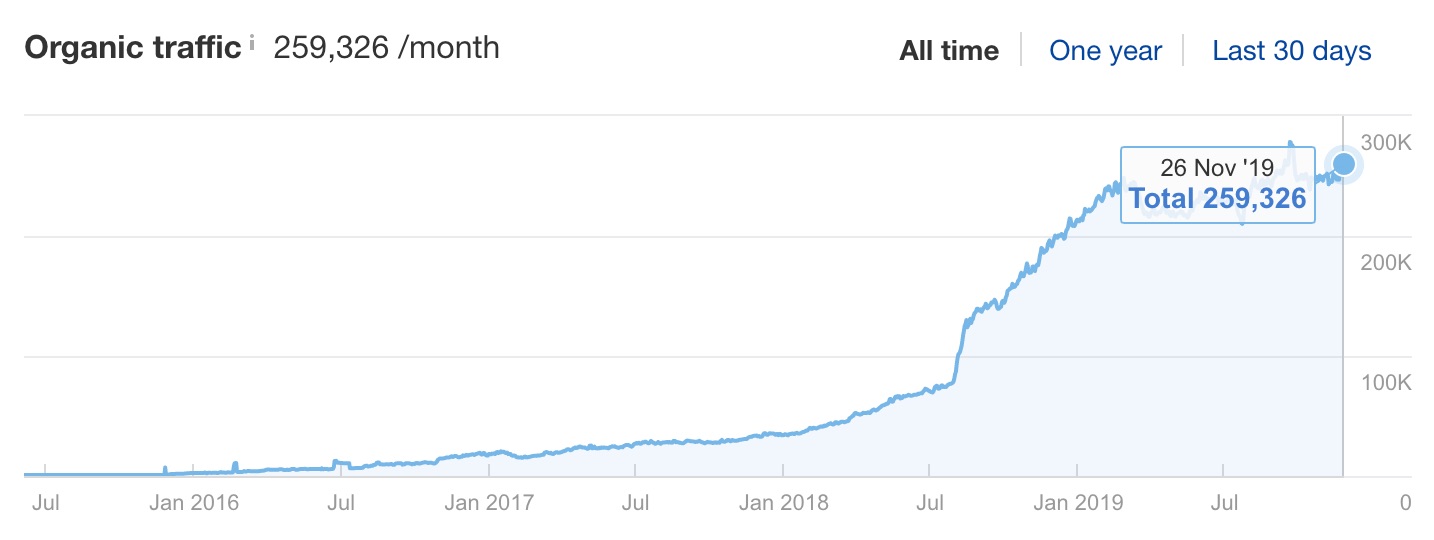
1. Write about topics people are searching for
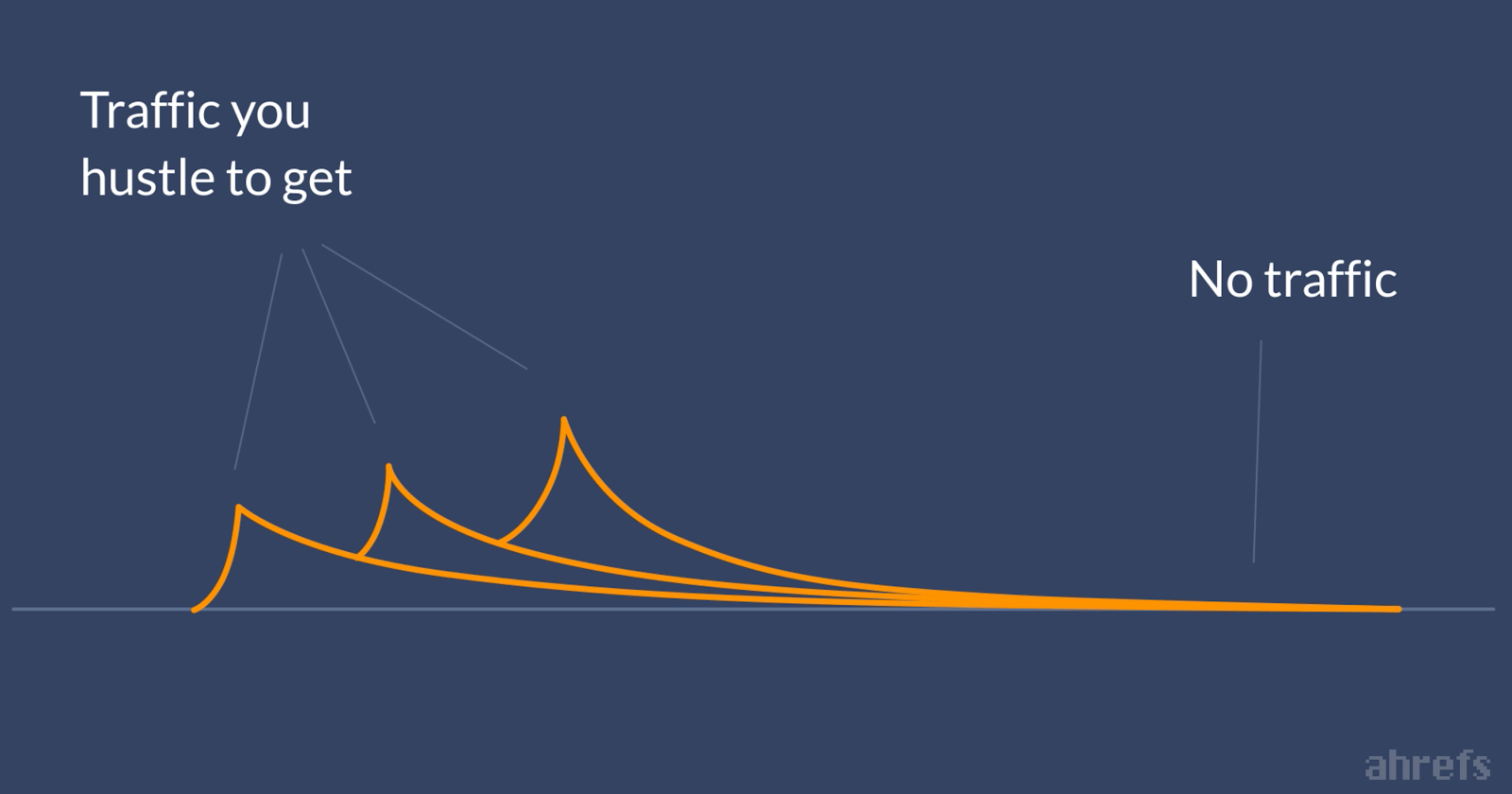
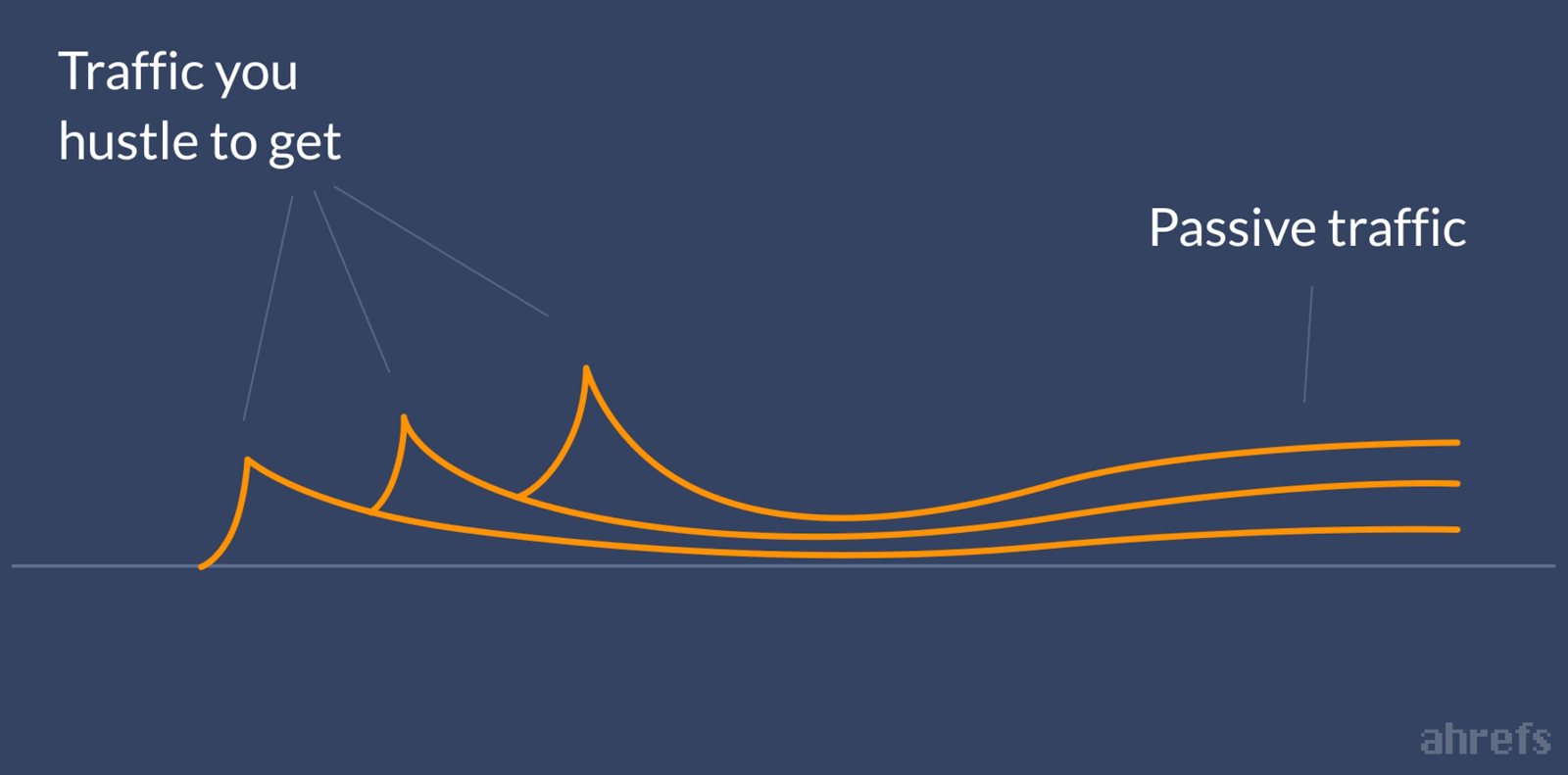

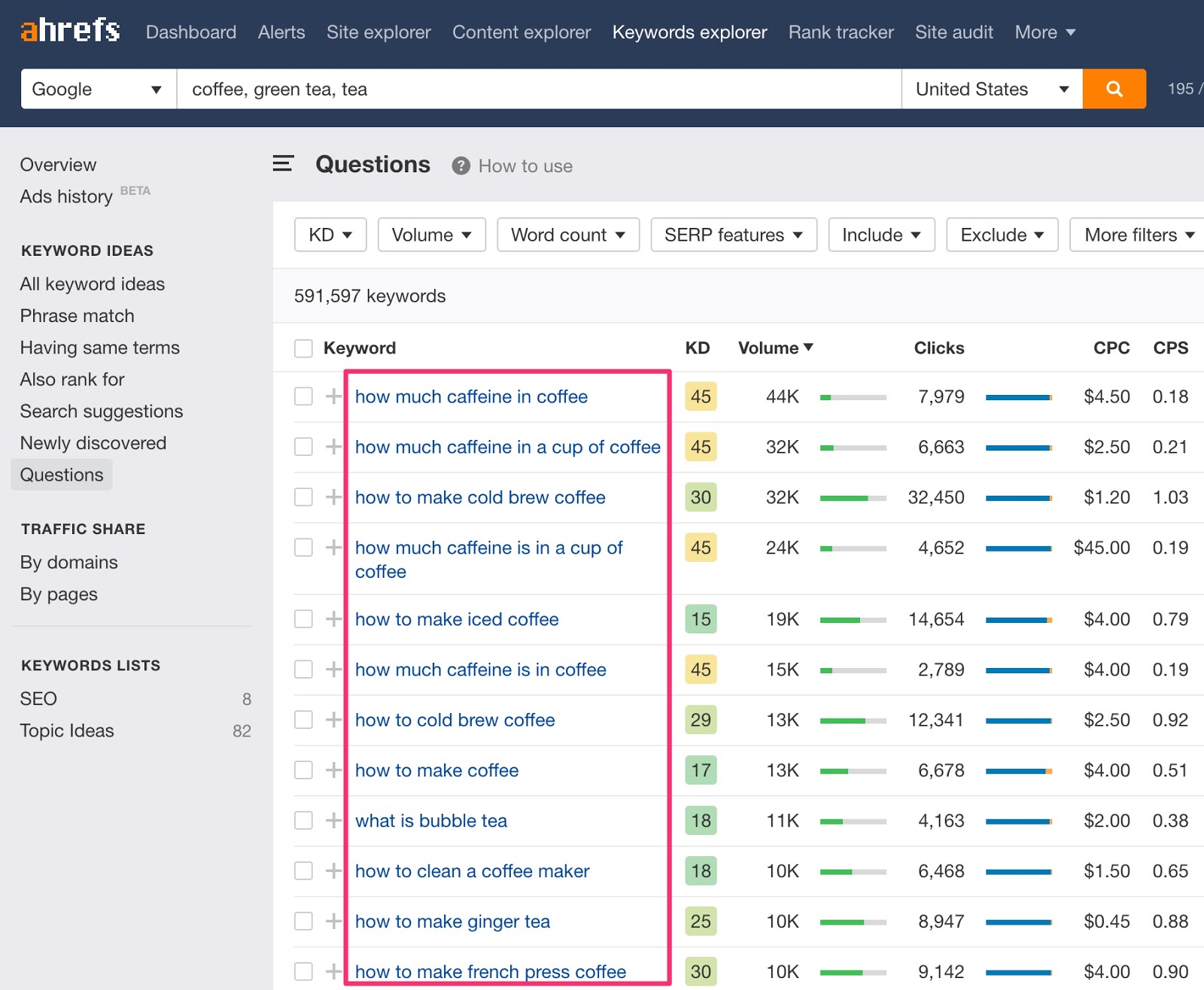
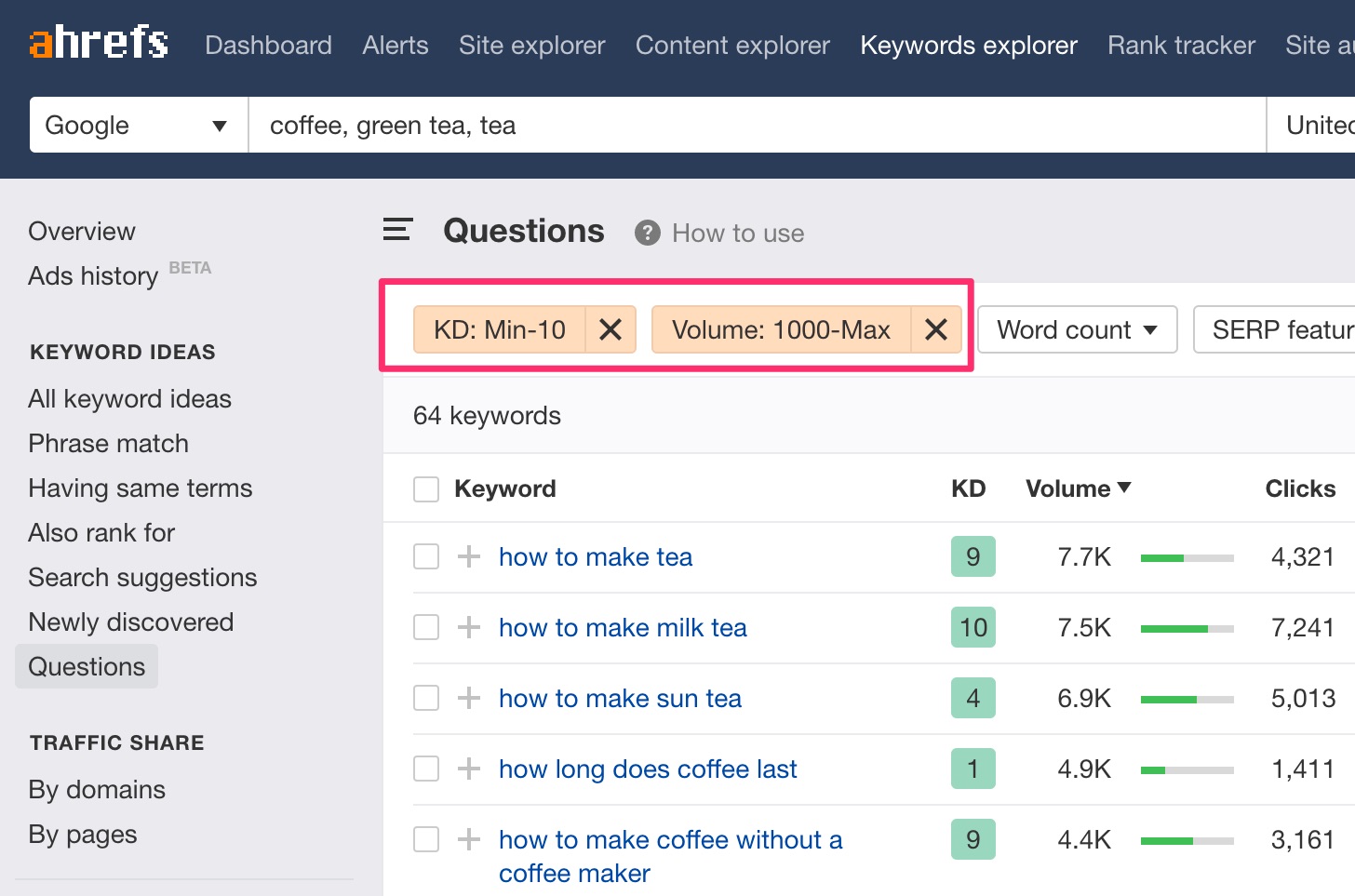
2. Make sure you're matching search intent

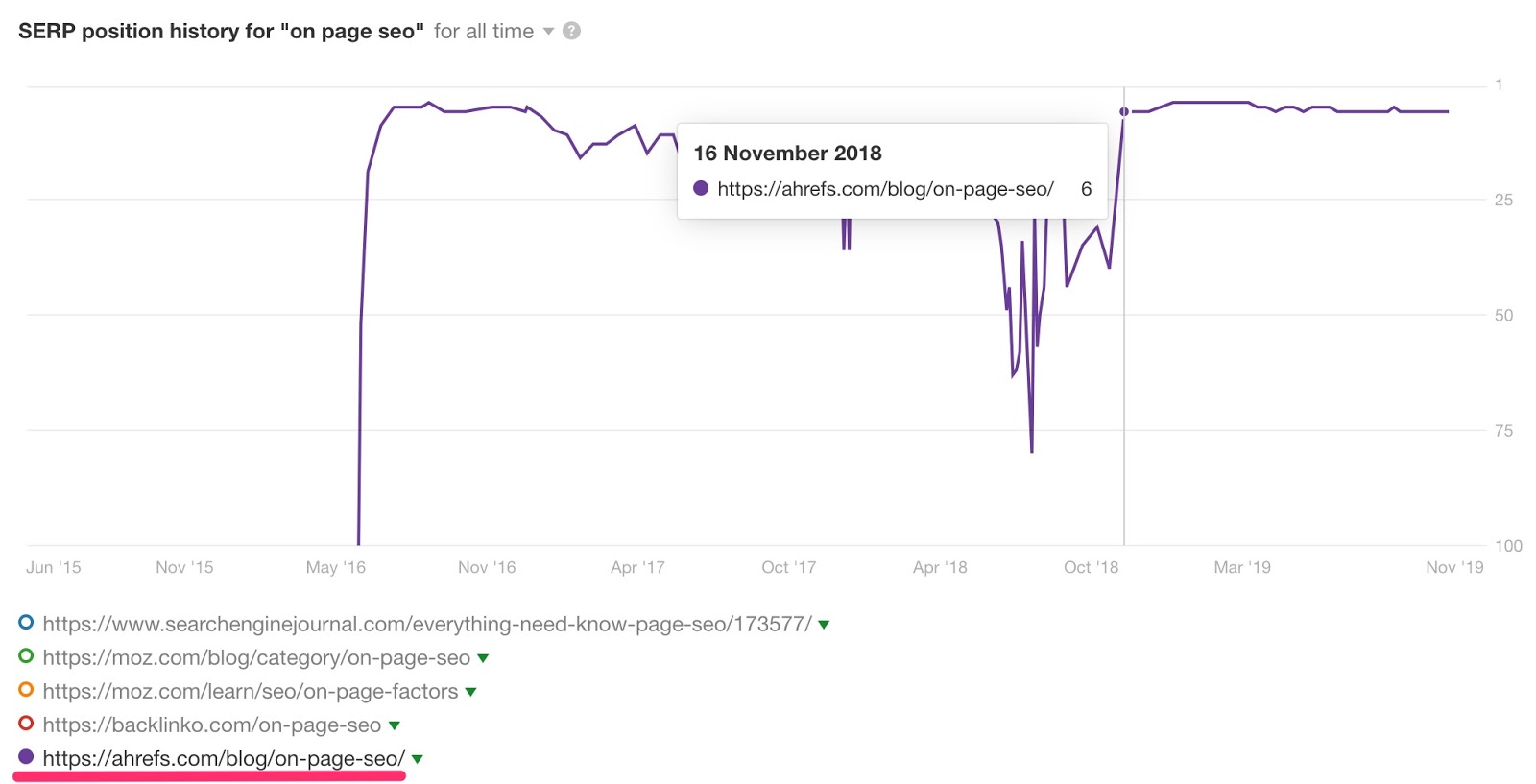
3. Tackle topics with in-depth content
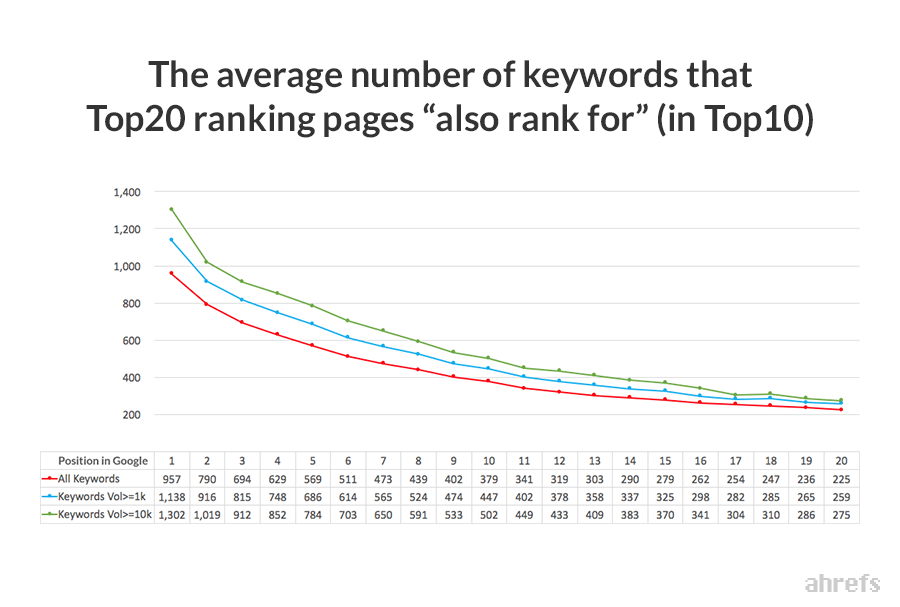
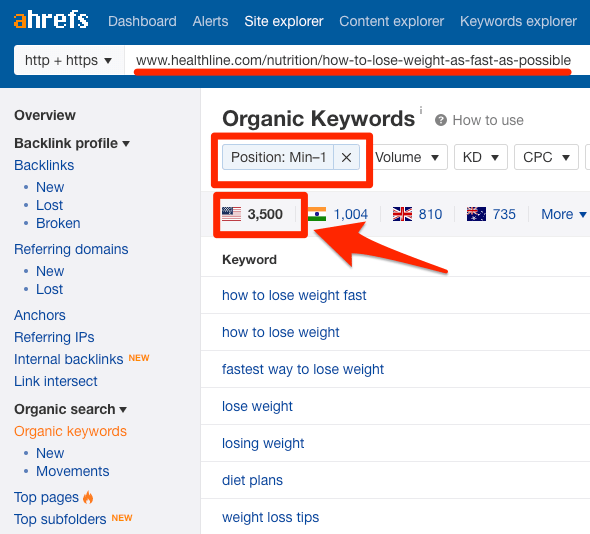
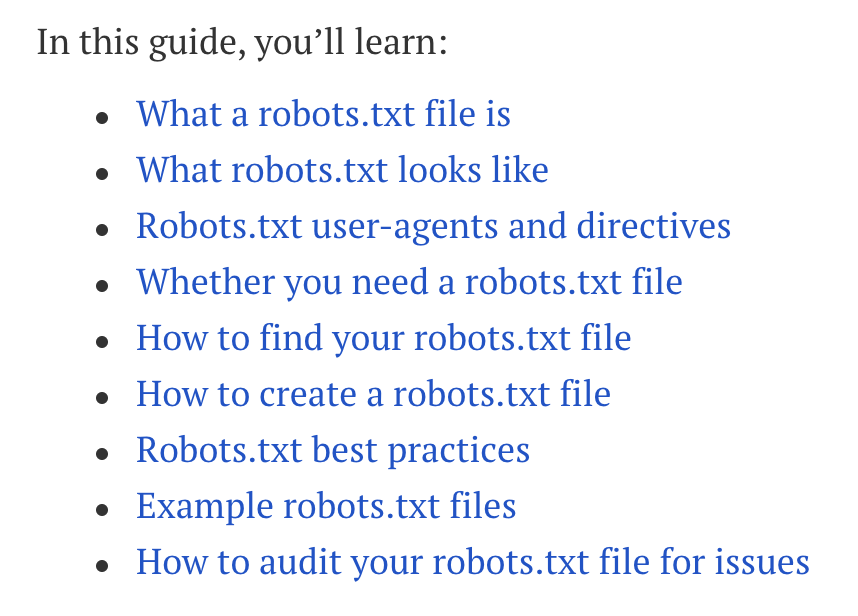
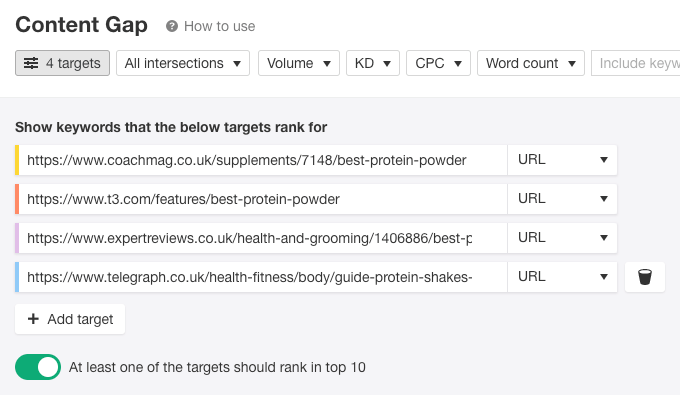
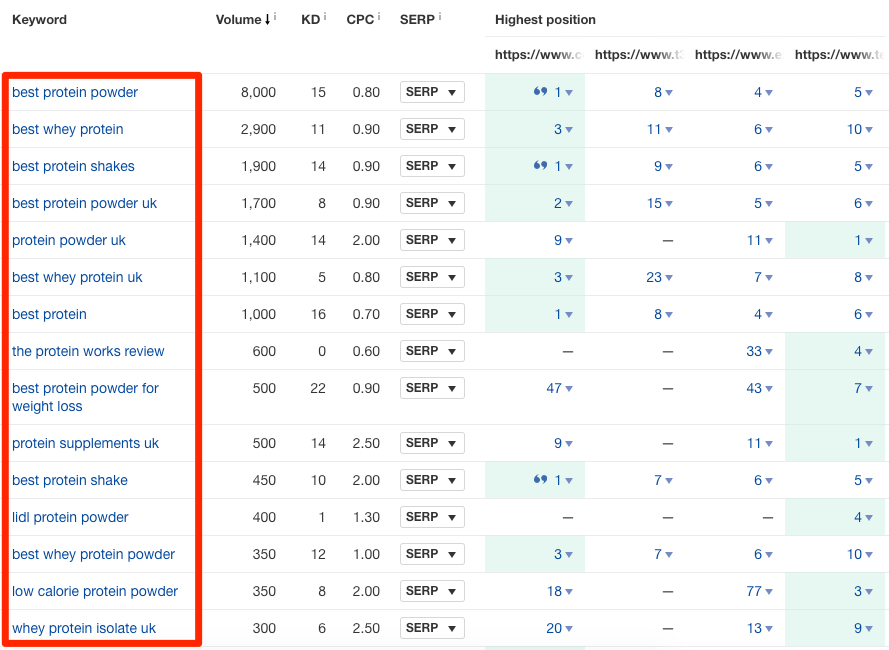
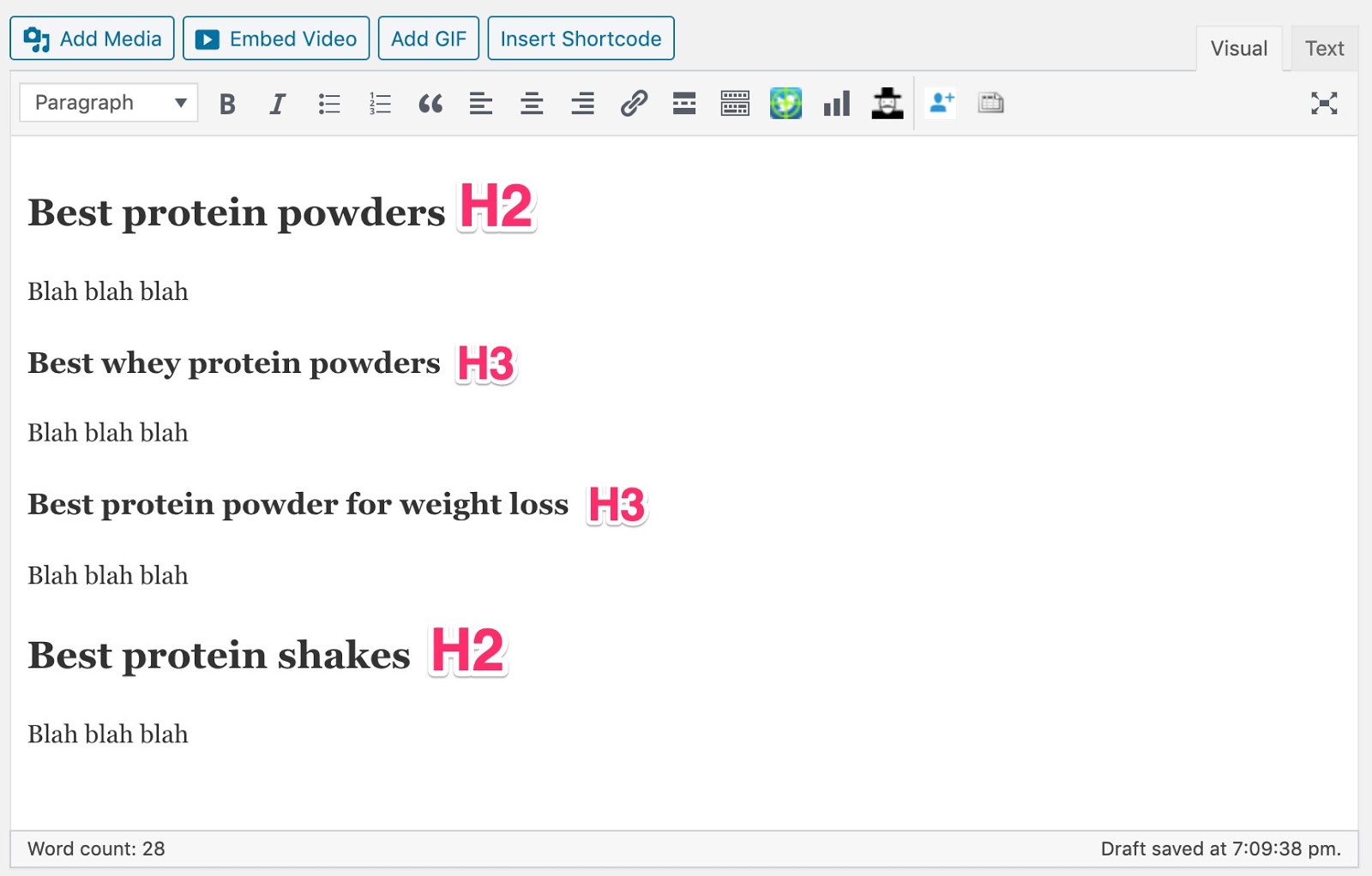
4. Build an email list
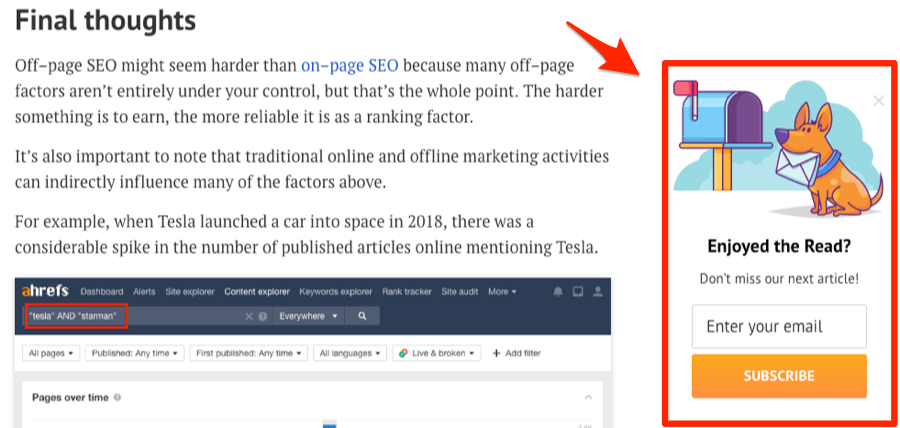
5. Reach out to people mentioned in your post
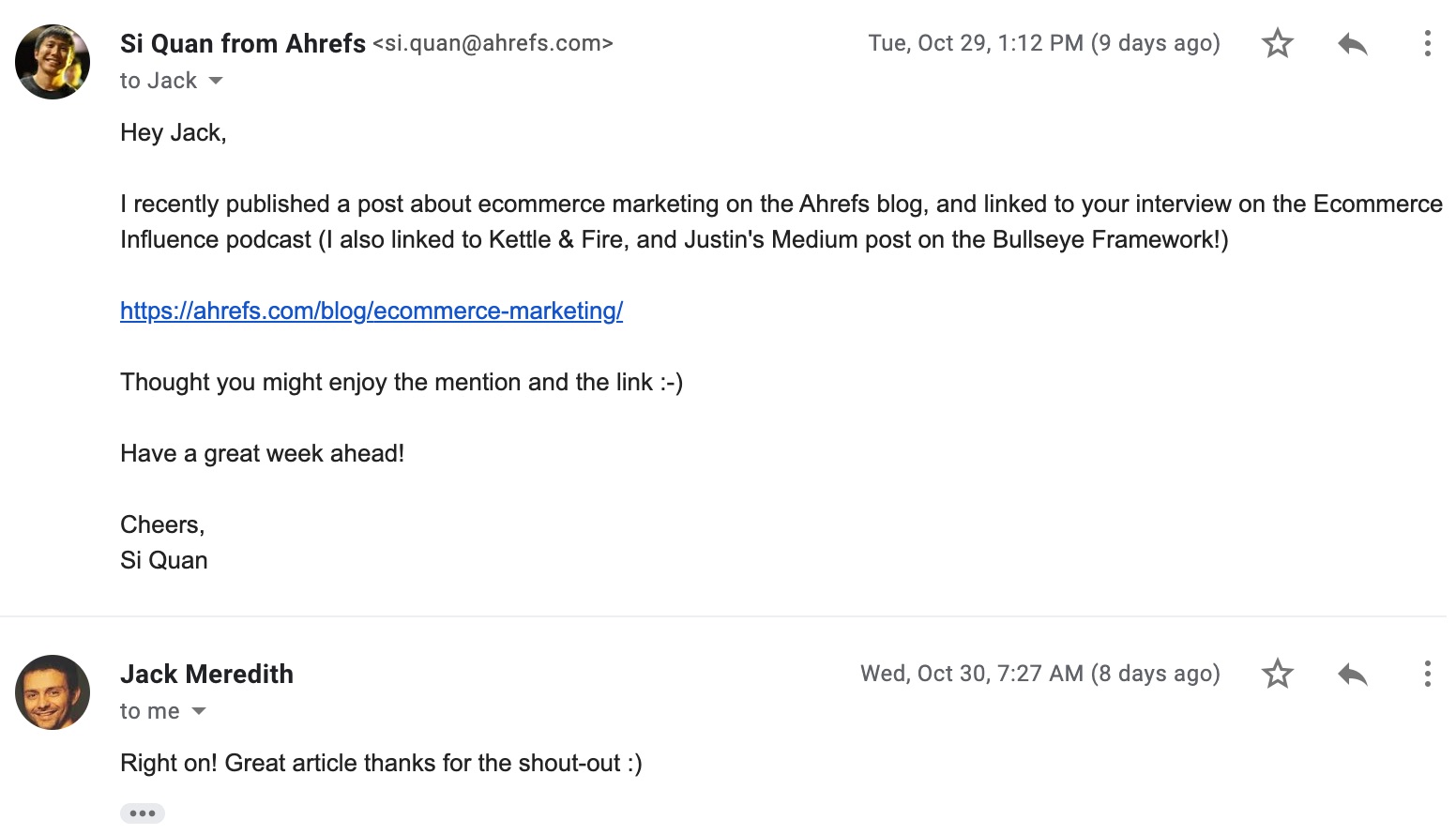
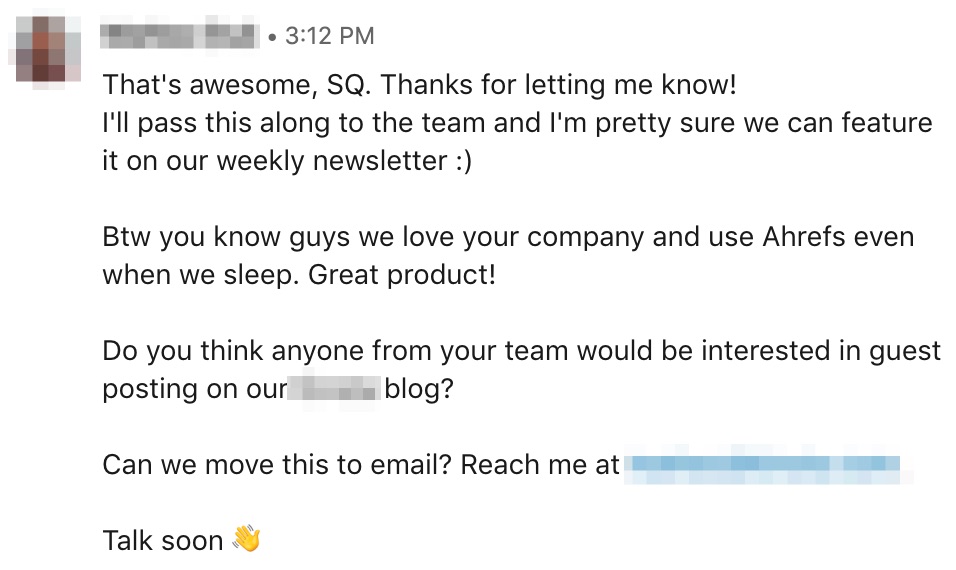

6. Boost important posts with internal links
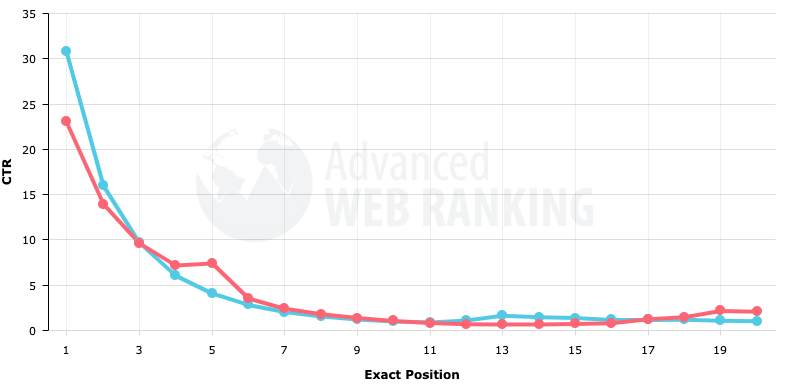
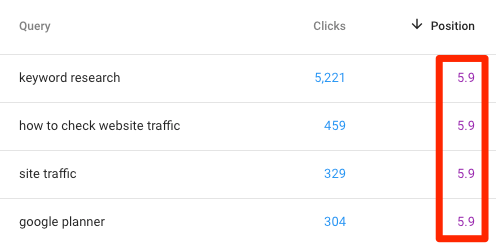
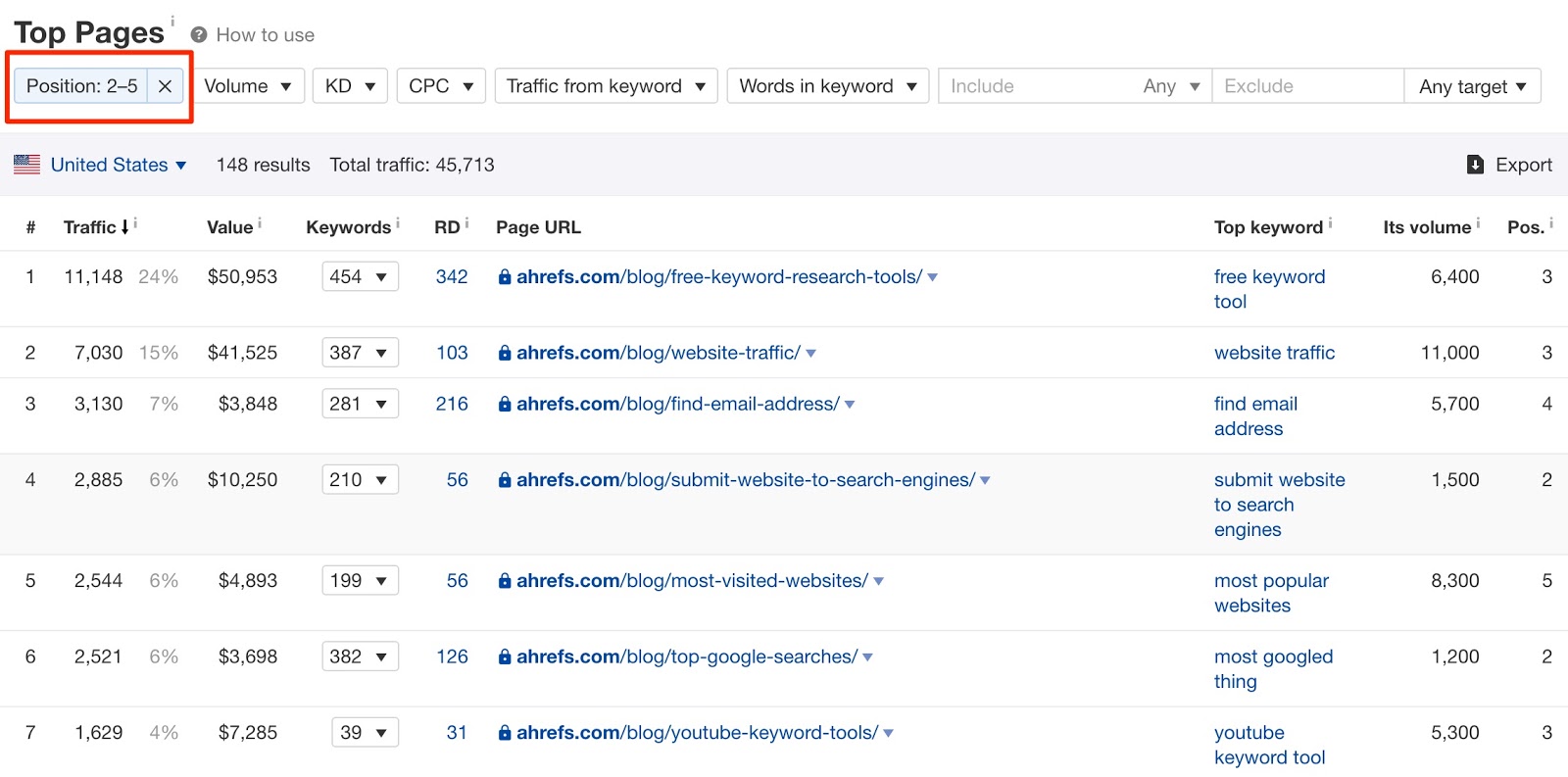
site: search operator. For example, if I wanted to add internal links to our recently published guide on how search engines work, I'll search for this in Google: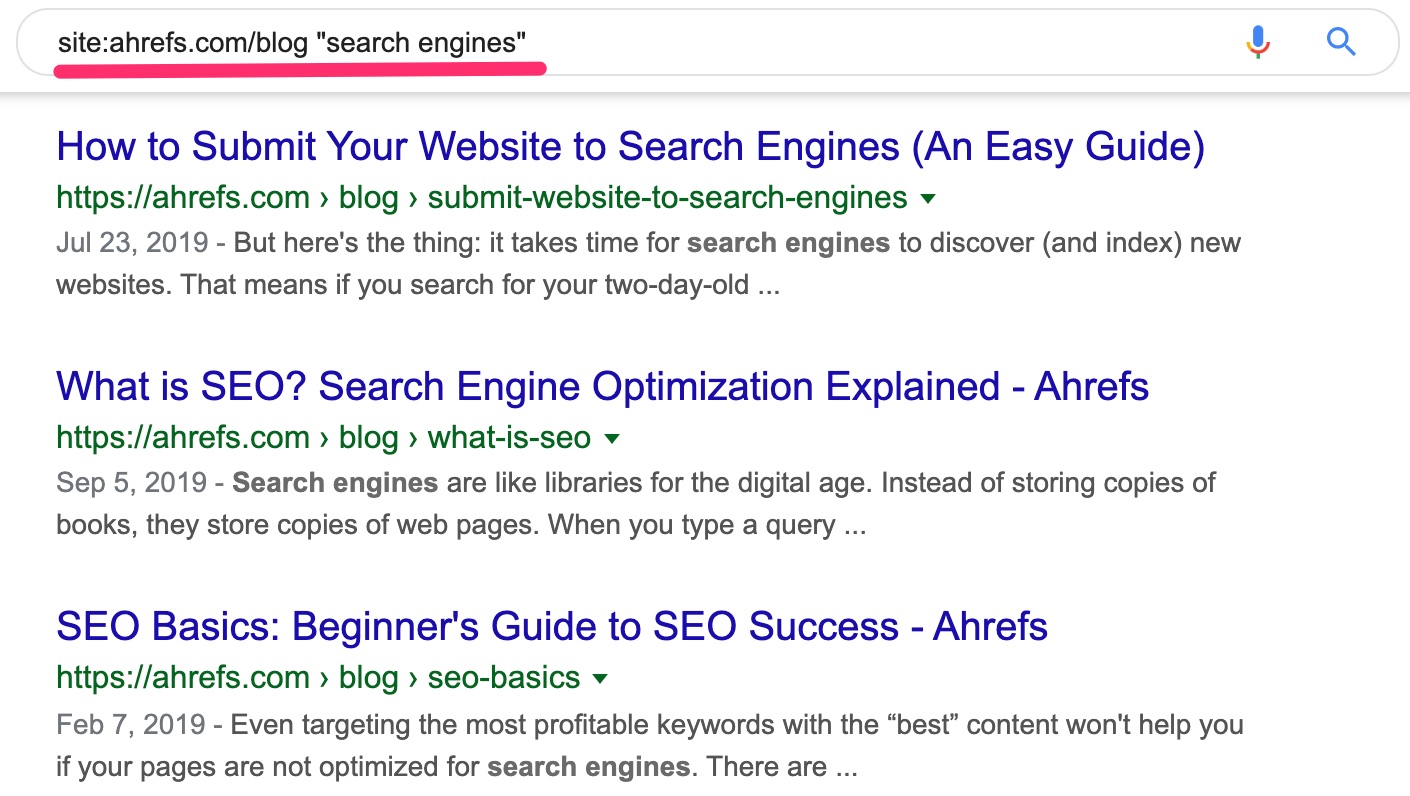
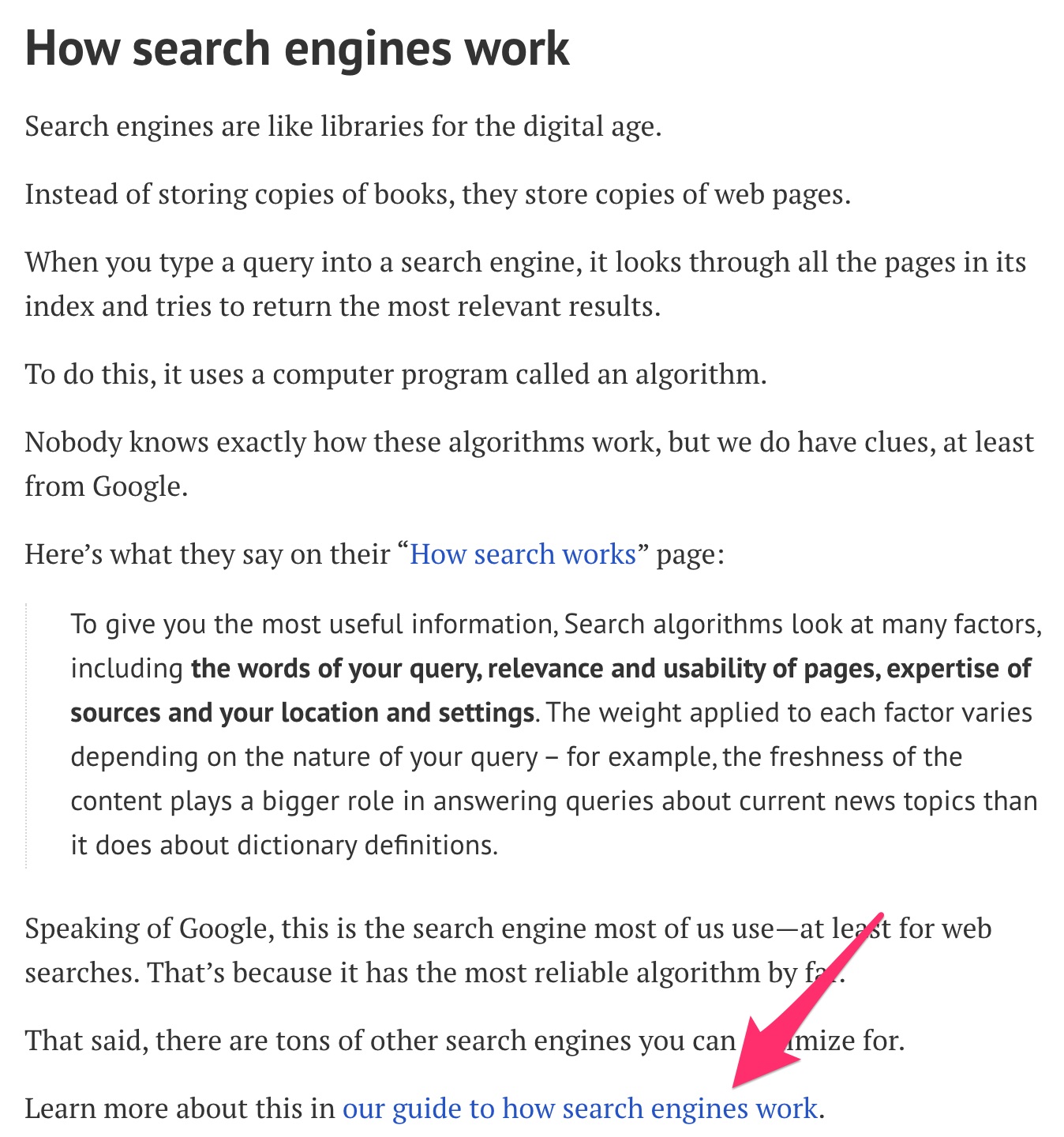
7. Build links
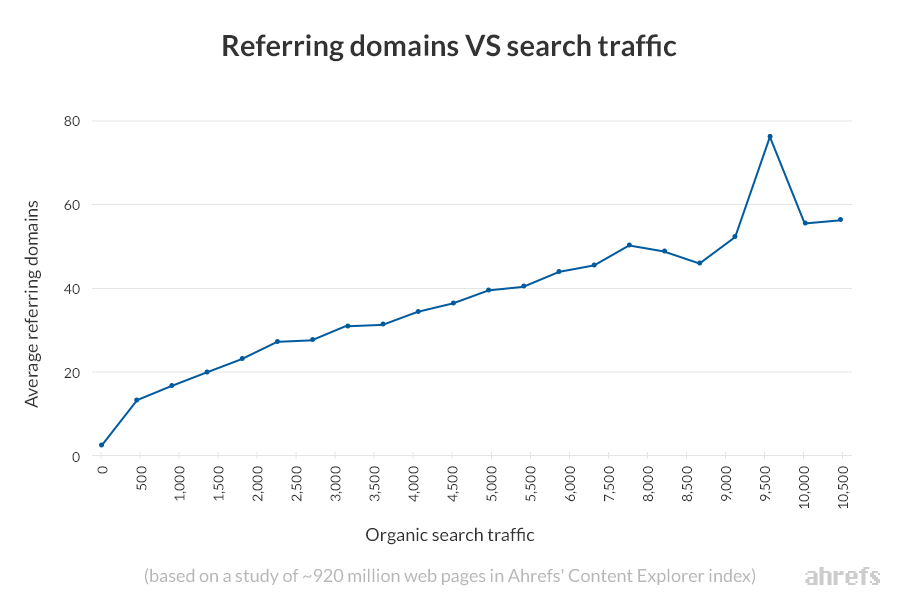
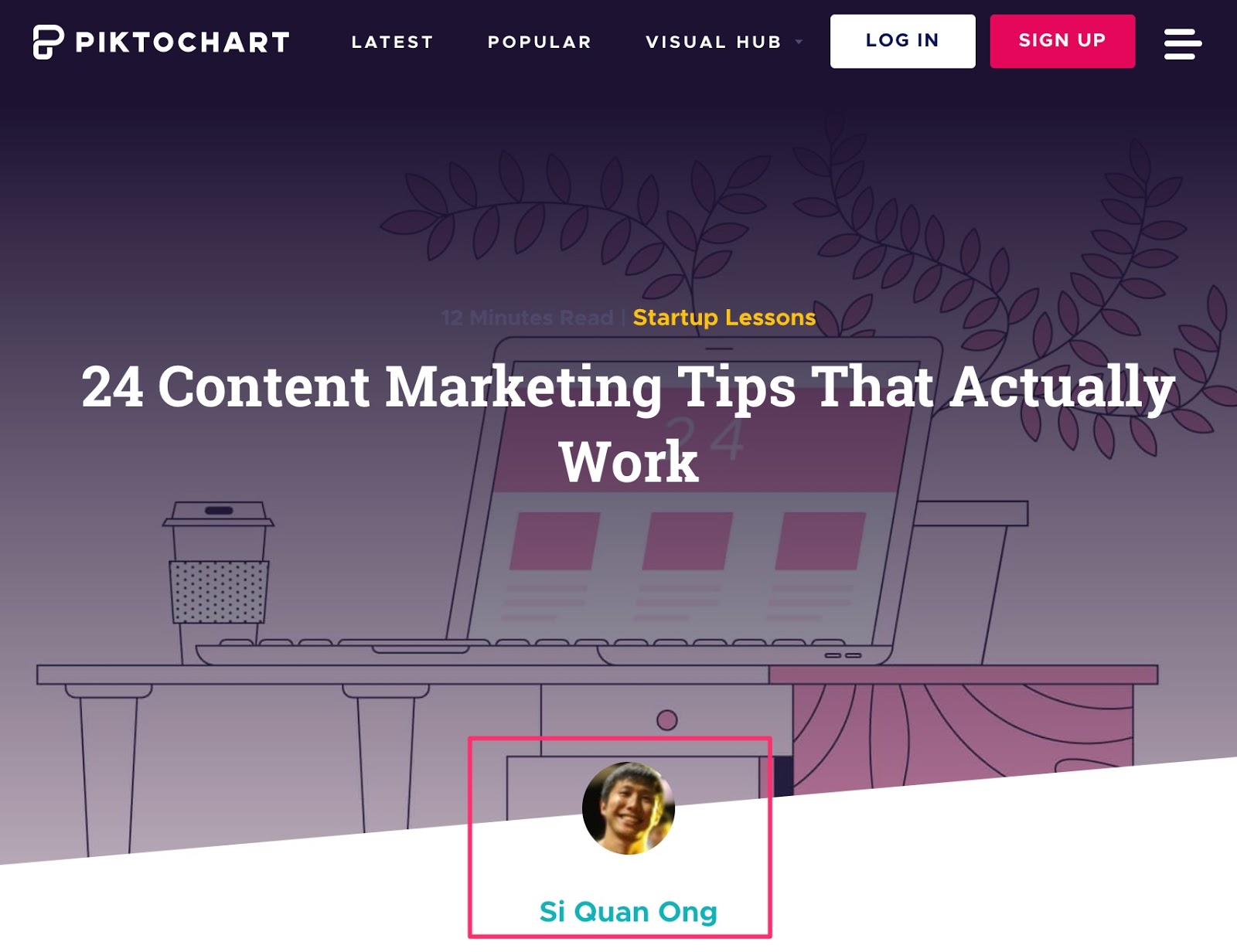
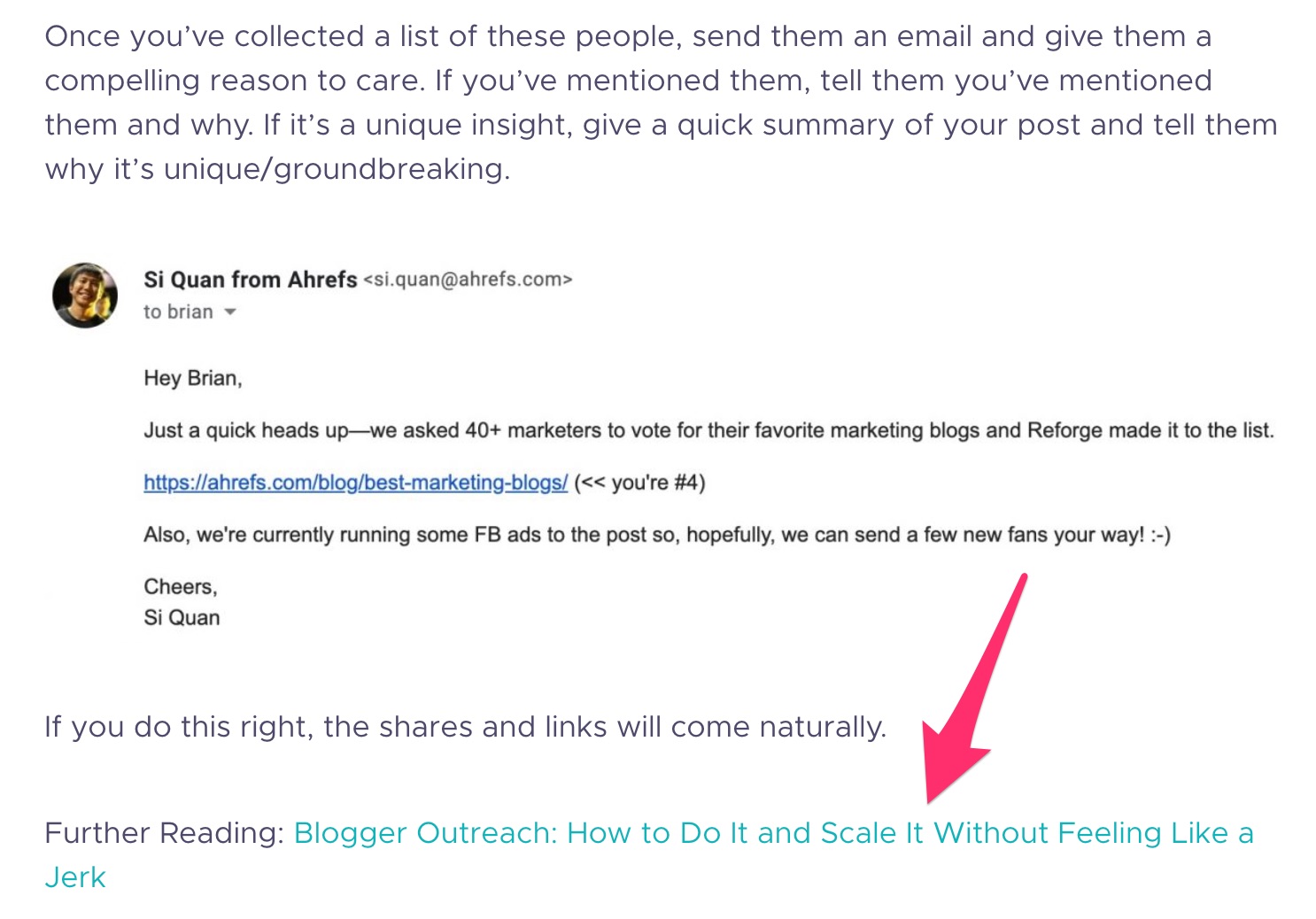
[your_topic] "write for us" [your_topic] "guest post" [your_topic] "guest article" [your_topic] "become an author" [your_topic] inurl:contribute 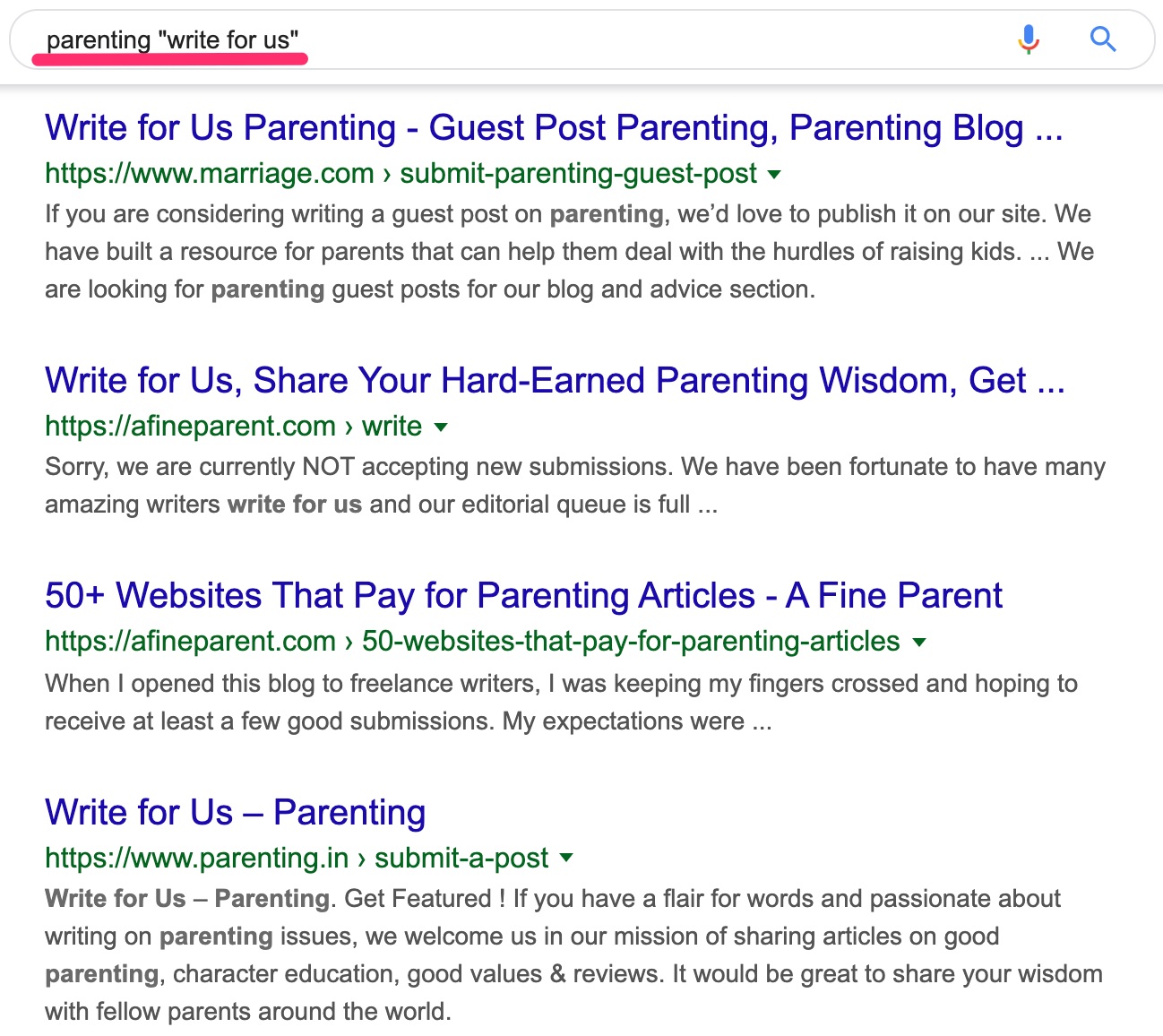
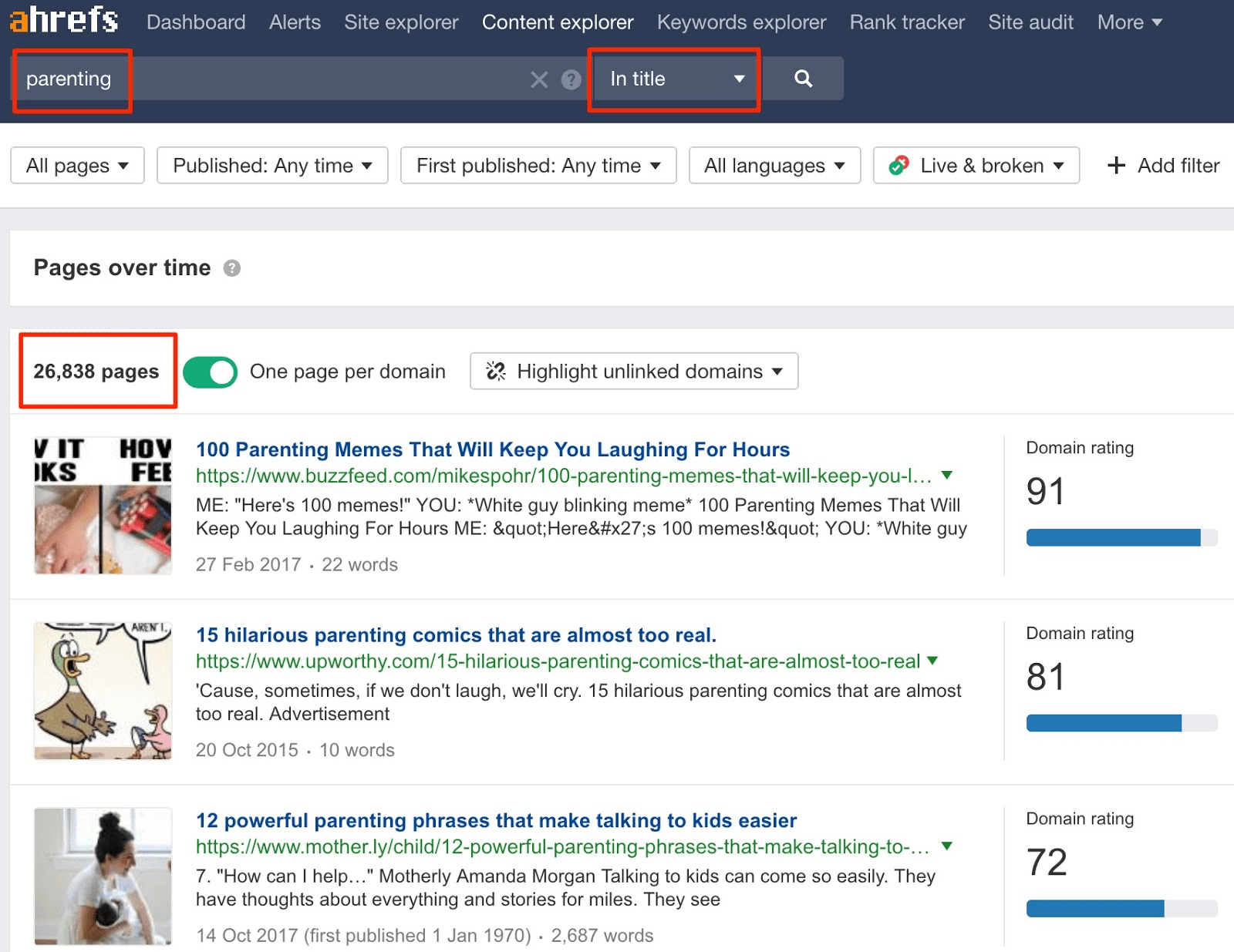
8. Answer questions on Quora


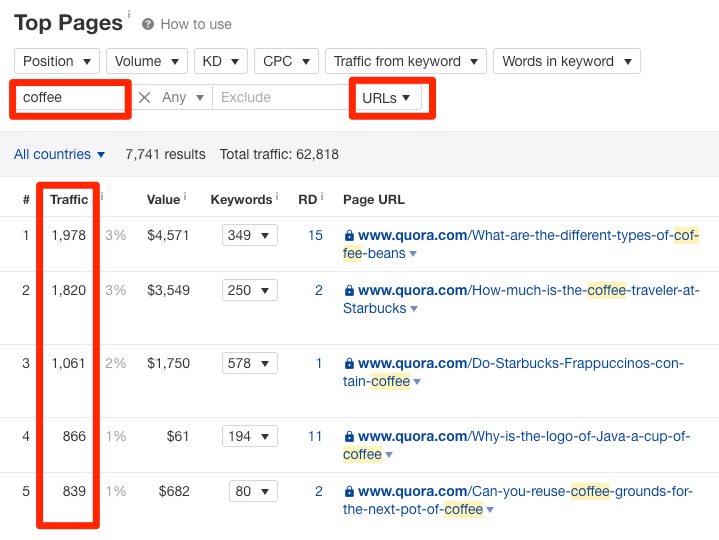
9. Promote content in relevant communities
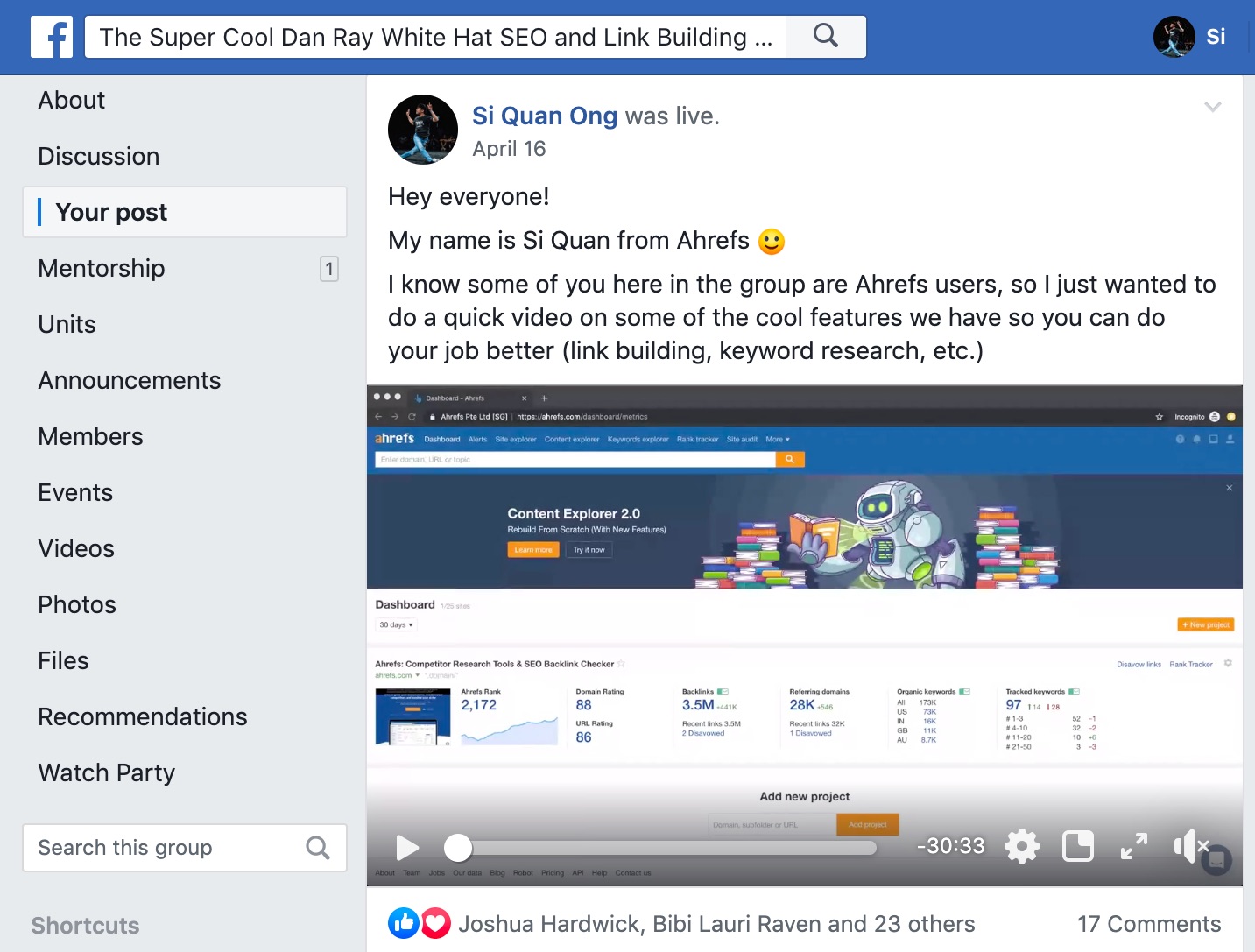
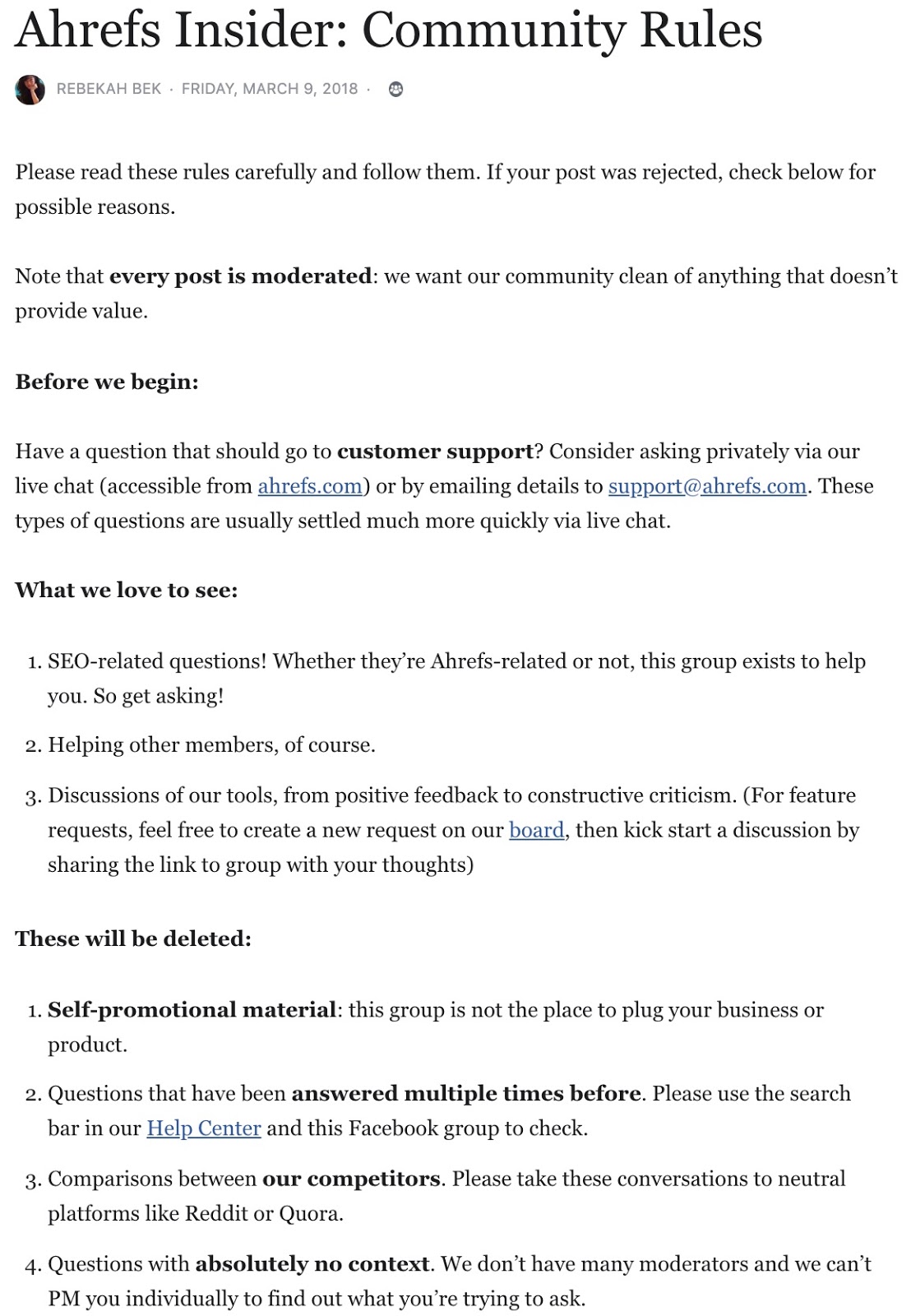
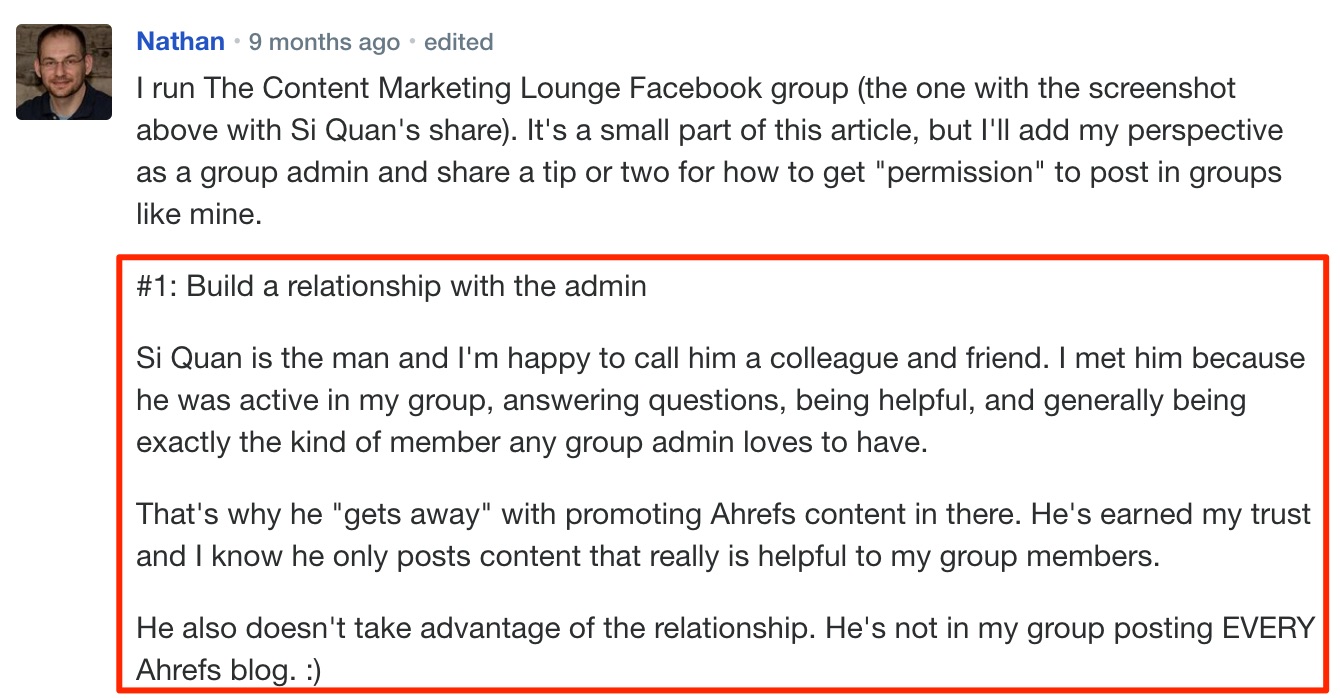
10. Publish guest posts on your site

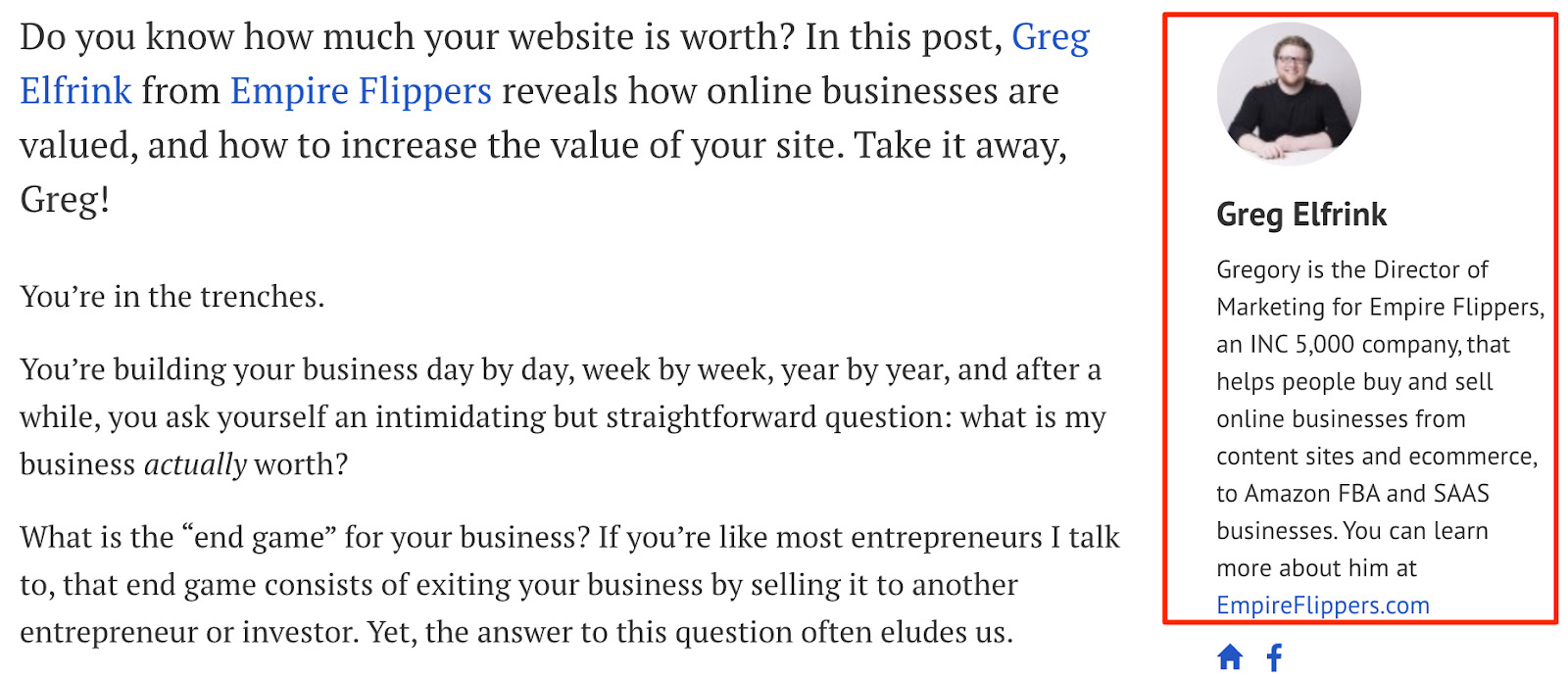
11. Create shareable images
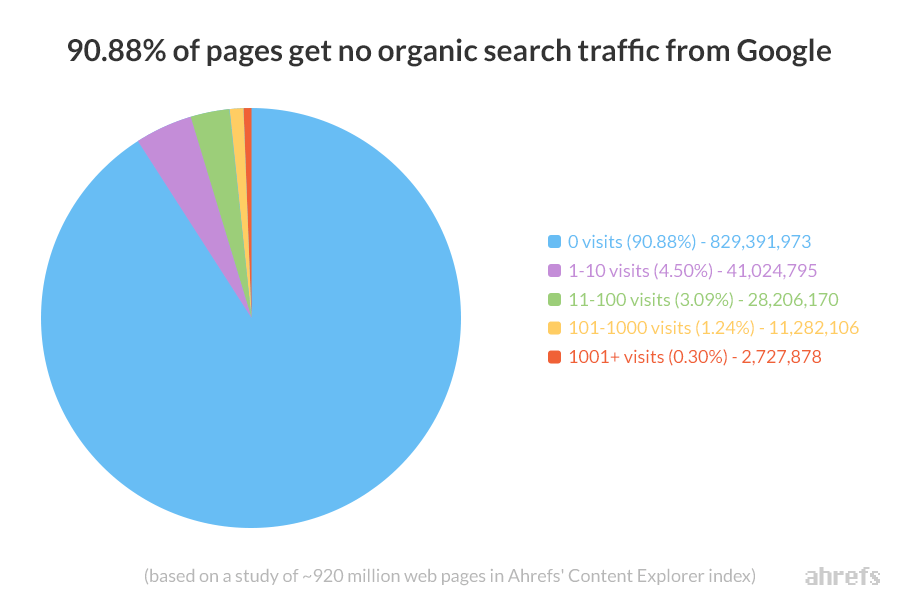
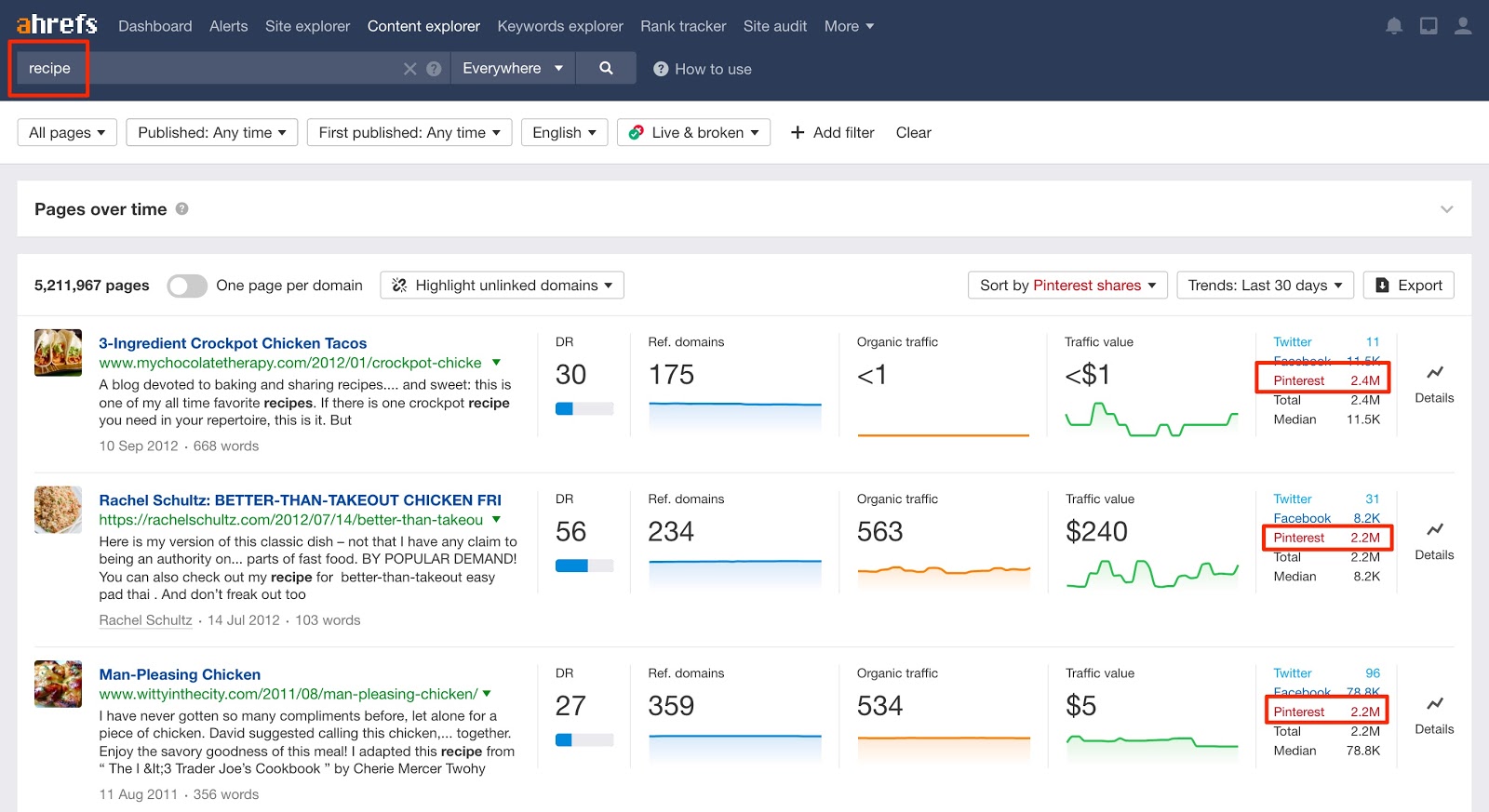

12. Share your content on Reddit

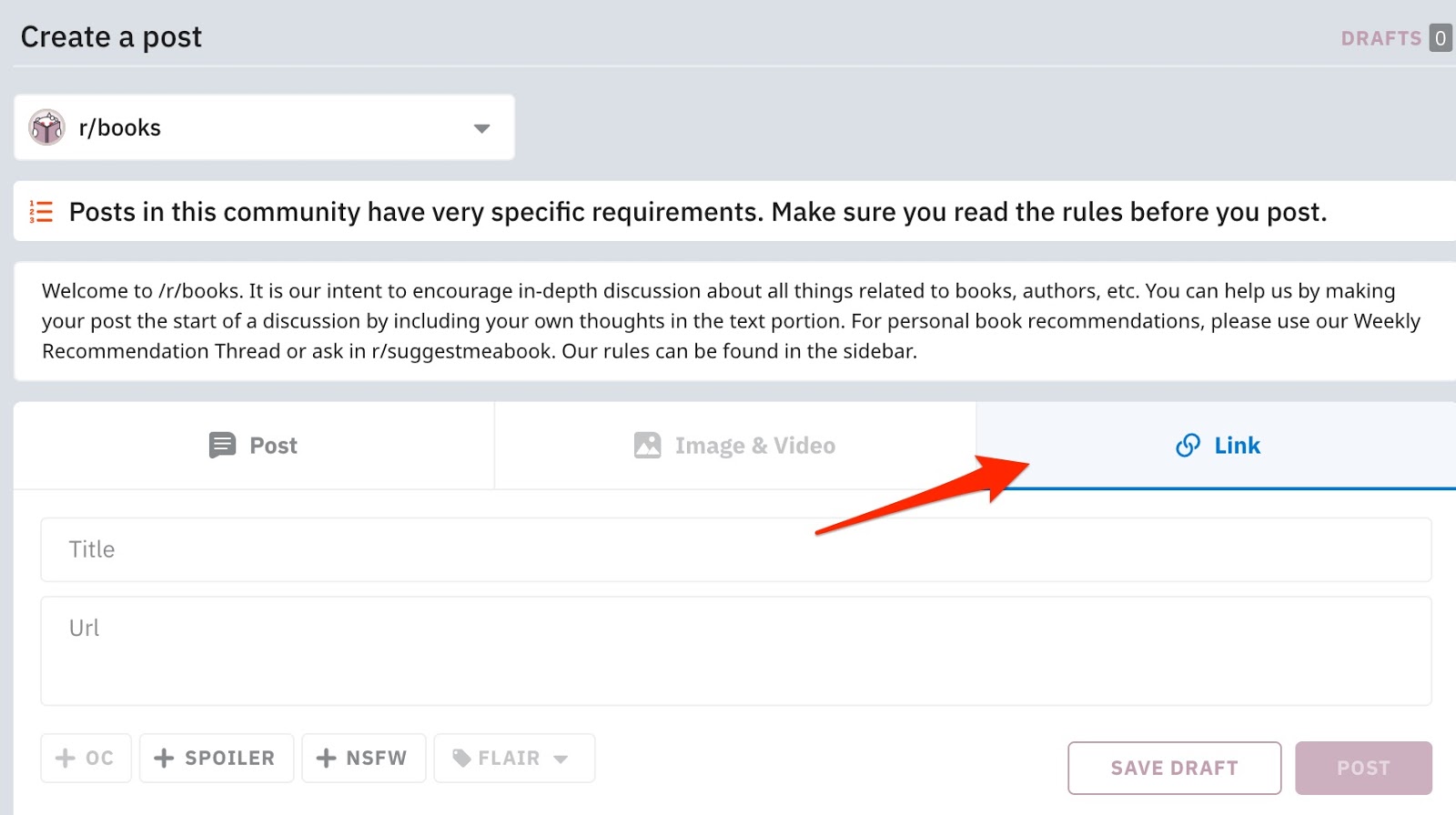
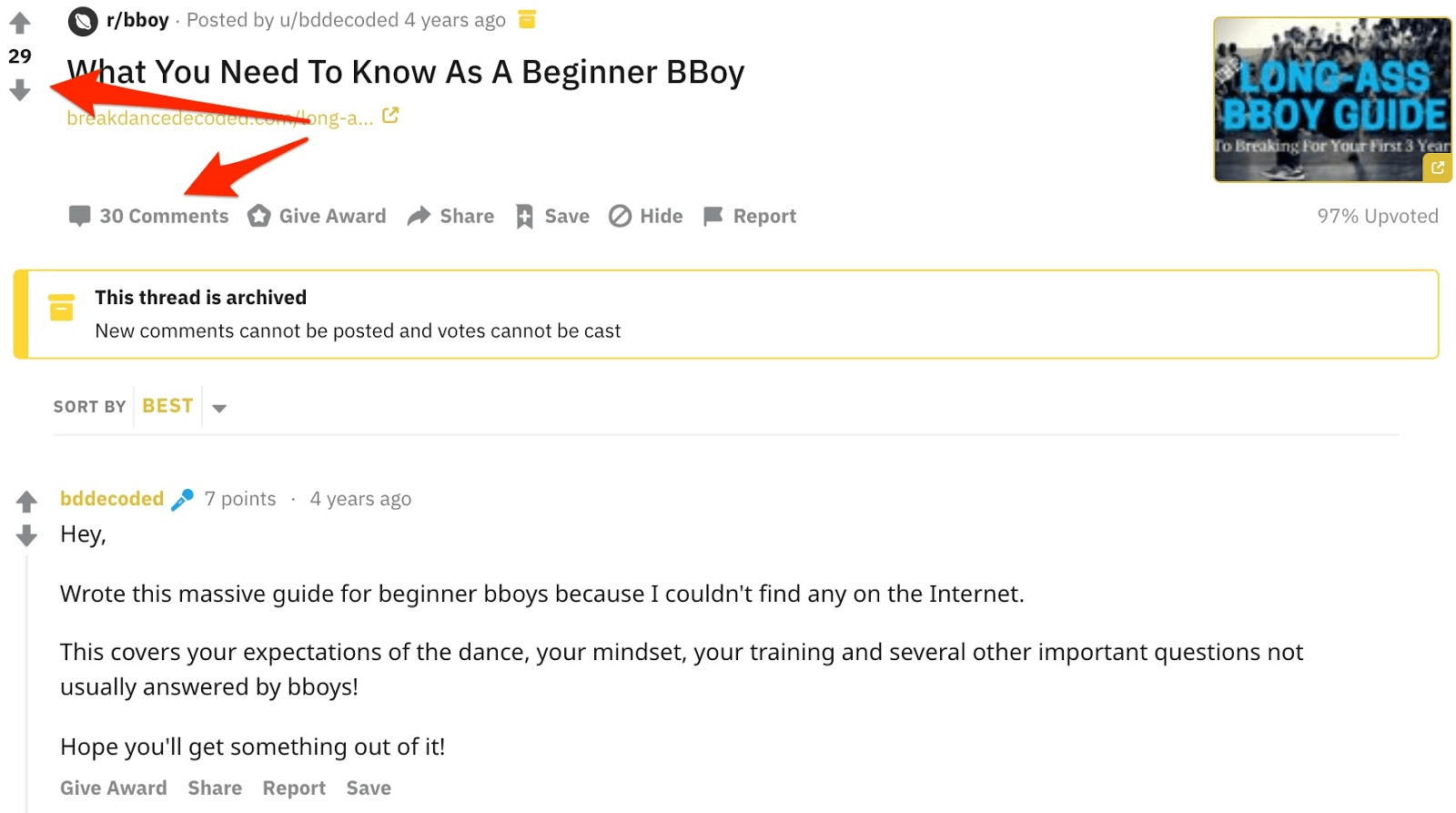
reddit.com/domain/yourdomain.com.
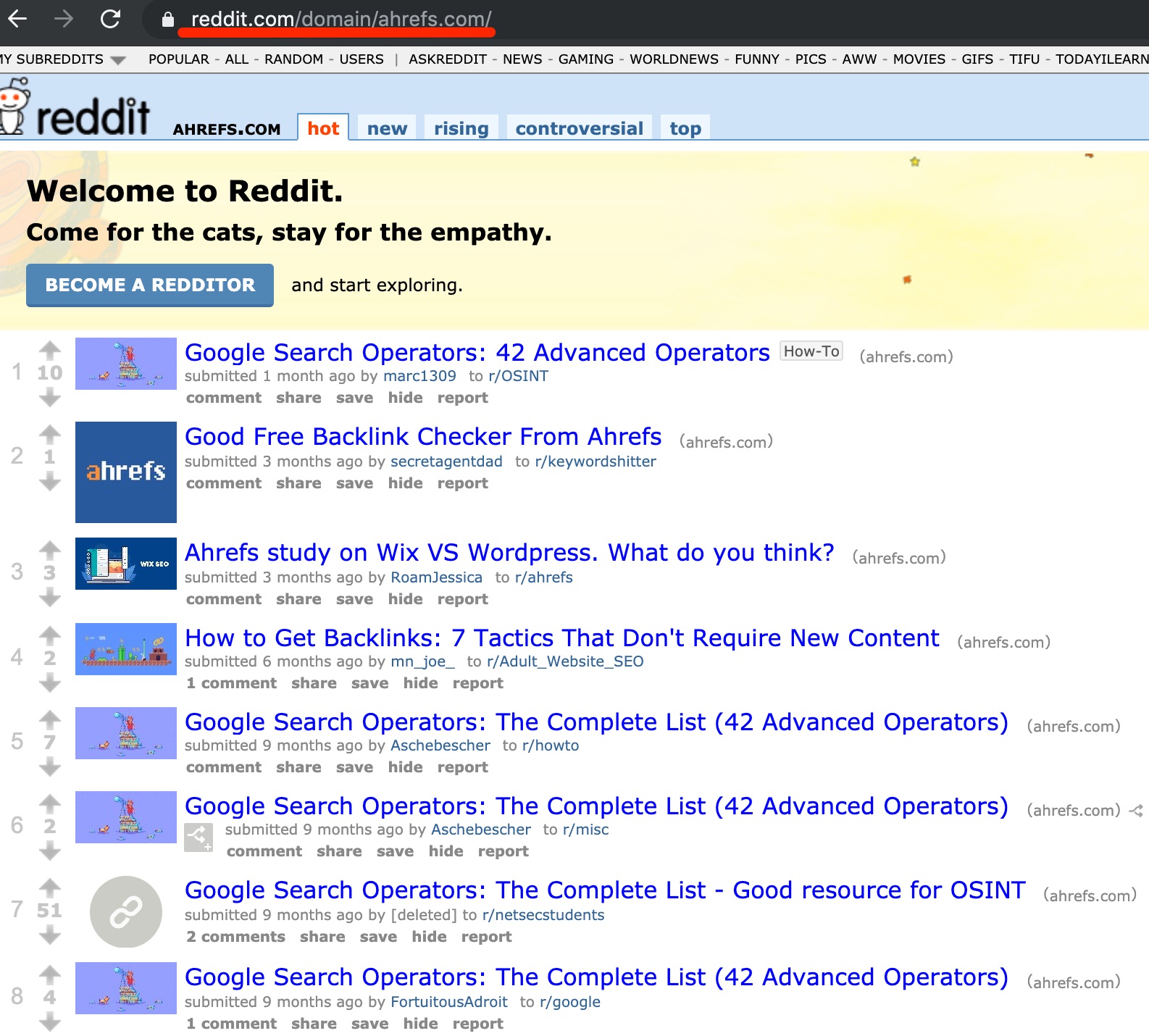
13. Run ads


Final thoughts
How To Gain Traffic To Blog
Source: https://ahrefs.com/blog/increase-blog-traffic/
Posted by: chalfantretticuld.blogspot.com

0 Response to "How To Gain Traffic To Blog"
Post a Comment